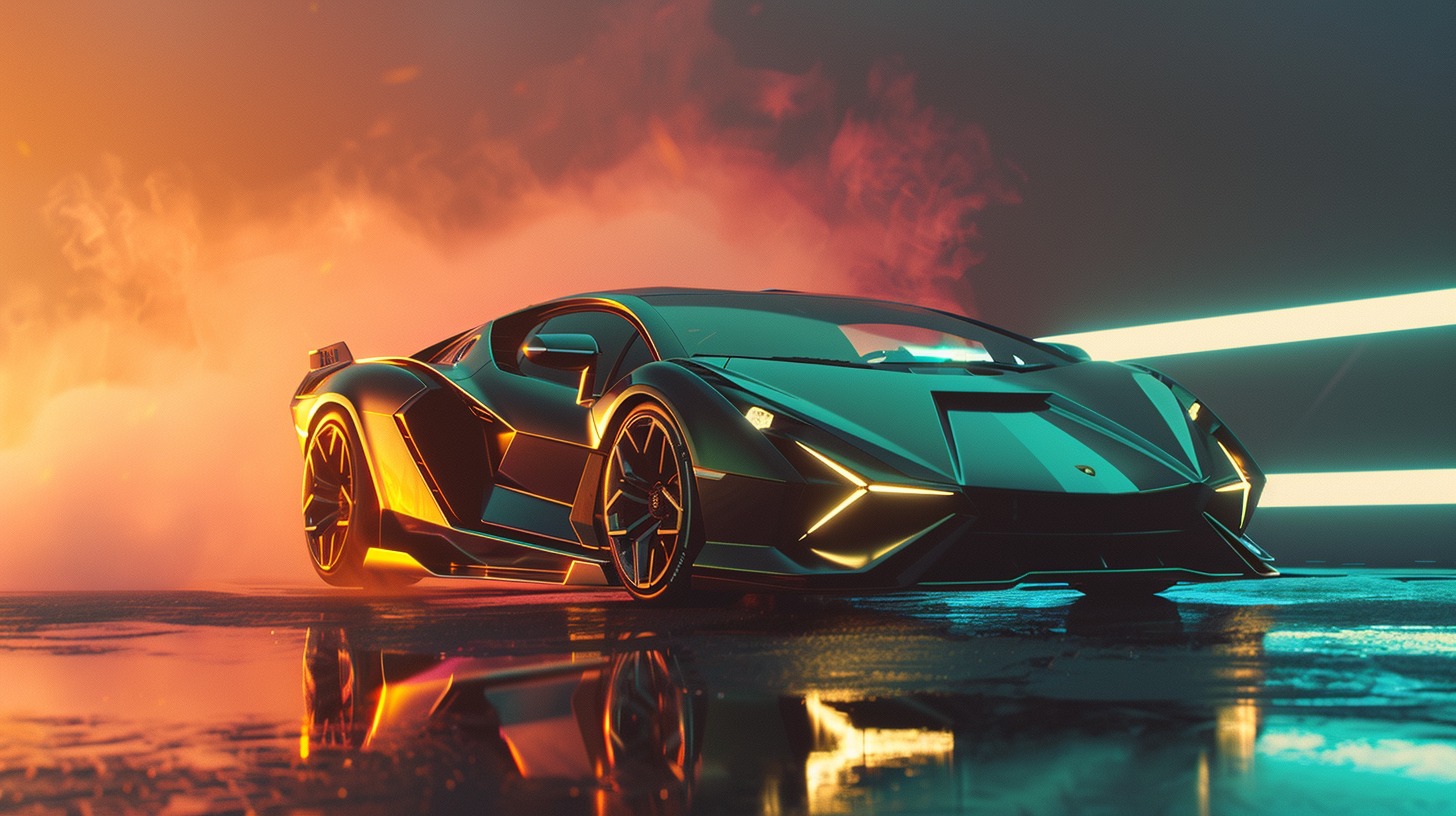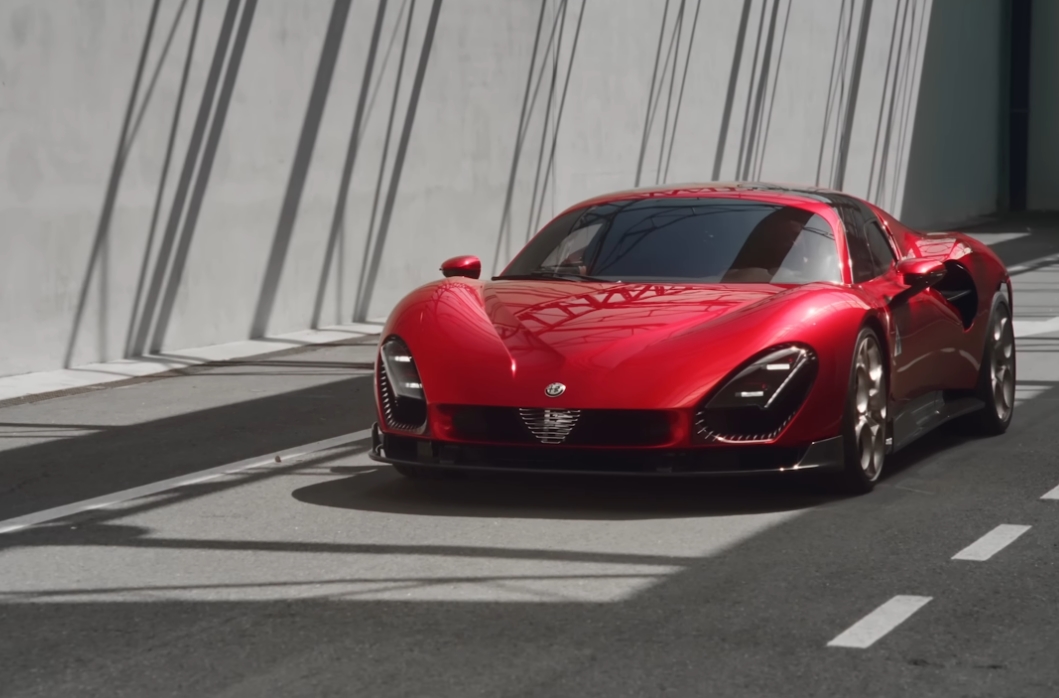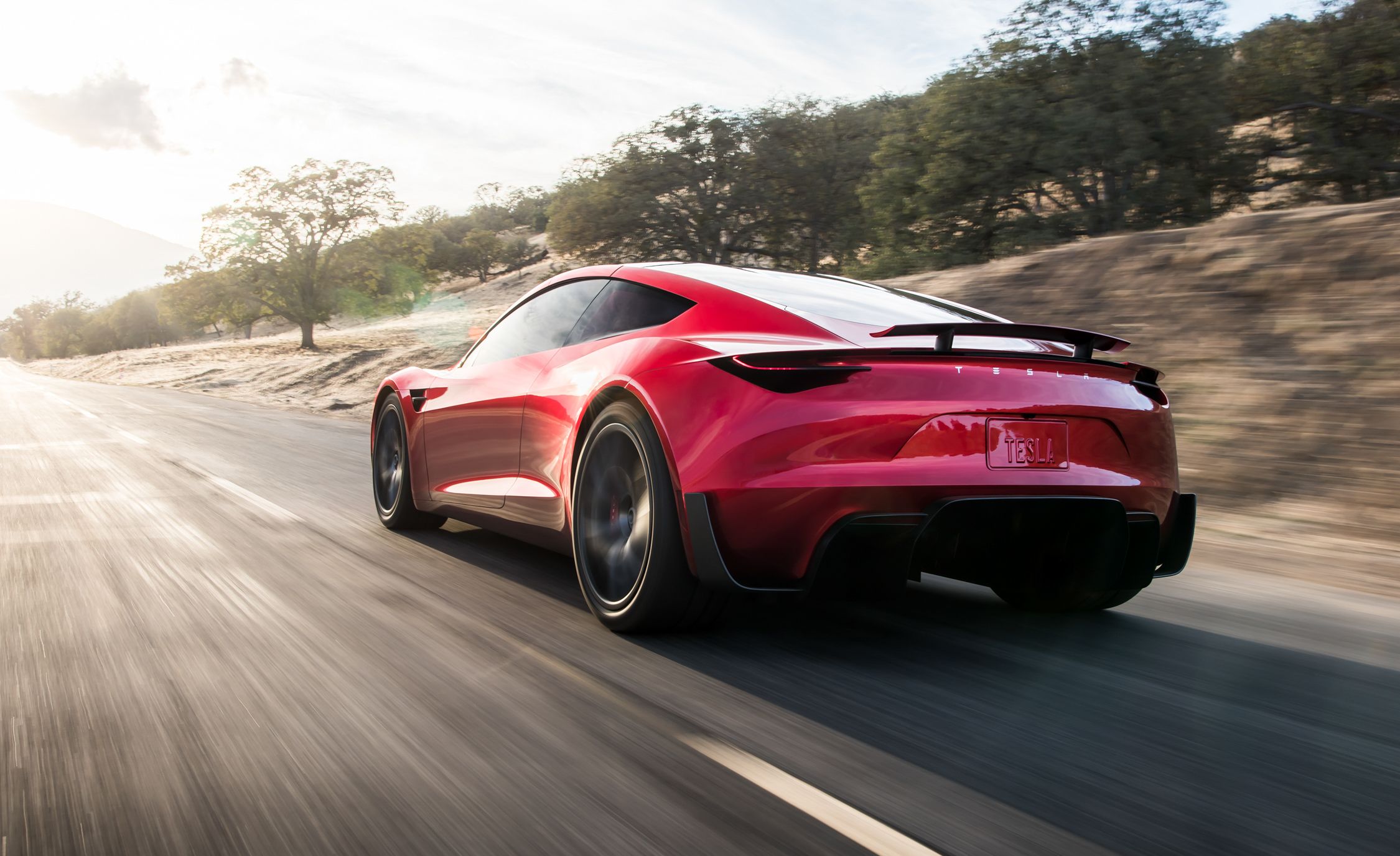The automotive industry is on the cusp of a significant shift, with a strong move towards electrification evident in the range of vehicles that manufacturers are preparing to offer.
Consumers will soon witness the introduction of electric vehicles (EVs) across various segments, including those traditionally dominated by gasoline engines.
The forthcoming market will see a diverse array of EVs, hybrids, and gasoline-powered vehicles, encompassing everything from daily drivers to high-performance supercars.
Despite the electric wave, there’s still enthusiasm for traditional internal combustion engines among many enthusiasts, and carmakers are responding with new and exciting models.
Companies such as Aston Martin, Chevrolet, and Lamborghini are among those planning to release vehicles that celebrate the thrill of the gasoline engine.
This broad spectrum of fresh options ensures that between now and 2028, buyers will have access to a robust lineup of cars, SUVs, and trucks to satisfy a range of preferences and driving experiences.
Key Takeaways
- The automotive industry is expanding its range to include electric vehicles (EVs), hybrids, and gasoline-powered cars. This includes luxury, performance, and everyday models.
- EVs are increasingly available across all market segments, including high-performance and luxury cars. Brands like Audi, Tesla, and Polestar are introducing powerful electric models.
- Despite the electric surge, traditional gasoline engines remain in demand. Companies like Aston Martin and Chevrolet are launching new gasoline models, catering to enthusiasts.
- Future cars will feature advanced technologies like electric powertrains, AI-driven systems, and innovative designs focusing on efficiency and sustainability.
- Noteworthy upcoming models include the Alfa Romeo Giulia Quadrifoglio EV, Aston Martin Valhalla, BMW Neue Klasse EV, Dodge Charger Daytona SRT EV, and the Lexus LFA EV.
- The trend extends to SUVs and trucks, with models like the Cadillac Escalade IQ, Chevrolet Silverado EV, and GMC Sierra EV, showing a shift towards electric power in all vehicle types.
1. Mercedes-Benz Vision AVTR
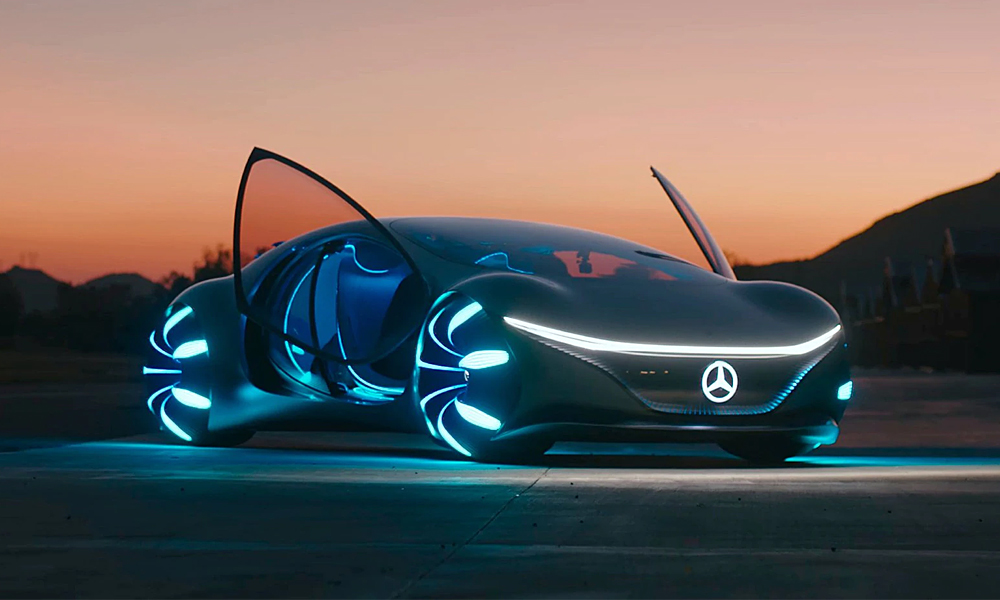
| Concept: | Advanced Vehicle Transformation (AVTR) |
| Engine Power: | Over 350 kW |
| Drive Type: | Electric with four motors, all-wheel drive with torque vectoring |
| Battery Technology: | Graphene-based organic cell chemistry, 100% recyclable |
| Charging Time: | Less than 15 minutes for full recharge |
| Electric Range: | More than 700 kilometers |
| Interior Material: | Color-changing fabric, vegan DINAMICA® leather |
| Unique Features: | Sideways movement, intuitive control, immersive experience space |
The Mercedes-Benz Vision AVTR is a futuristic concept car that redefines the relationship between human, machine, and nature. Inspired by the movie “Avatar,” its name stands for “Advanced Vehicle Transformation,” highlighting the collaborative effort with the AVATAR team and Mercedes-Benz’s vision for future mobility.
This emission-free machine boasts four high-performance electric motors, offering a new level of a dynamic luxury saloon with over 350 kW of combined engine power.
Its innovative all-wheel drive allows for unique movements like sideways “crab movement,” thanks to fully individually controllable motors and torque vectoring.
The Vision AVTR features groundbreaking organic battery technology based on graphene-based organic cell chemistry, eliminating the need for rare, toxic metals and making it 100% recyclable. With an impressive electric range of over 700 kilometers and the ability to fully recharge in less than 15 minutes, it sets new standards for energy efficiency and fast charging capabilities.
The interior and exterior design merge seamlessly, focusing on passenger experience and sustainable materials, including color-changing fabrics and vegan DINAMICA® leather. The car intuitively connects with its passengers, creating an immersive experience space that extends human perception and interaction with the environment.
2. Concept Car Scilla
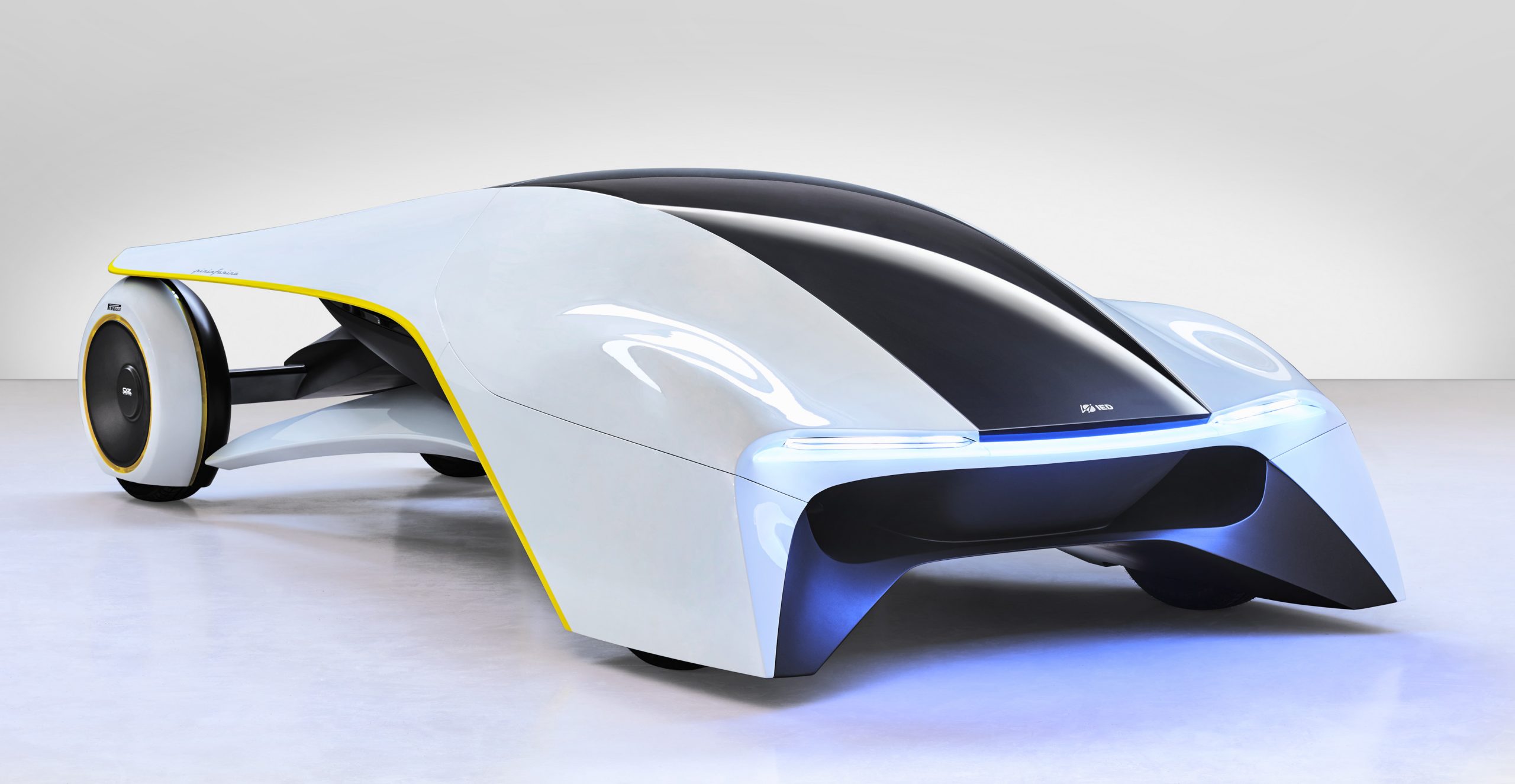
| Size Comparison: | About the size of a Ferrari 488 |
| Height: | More than four inches lower than a Ferrari 488 |
| Layout: | 1+1, like an old fighter jet |
| Powertrain: | Each wheel houses an individual electric motor |
| Capabilities: | Semi-autonomous |
At the Geneva Motor Show, Quattroruote, alongside the transportation design students from the Istituto Europeo di Design (IED) in Turin and the iconic design house Pininfarina, revealed the Scilla concept car. This avant-garde vehicle, about the size of a Ferrari 488 but sitting more than four inches lower, is Italy’s vision of the car of 2030.
The Scilla, with its streamlined shape, is designed to encapsulate two occupants in a 1+1 layout reminiscent of an old fighter jet. Each wheel of this concept car is equipped with an individual electric motor, and it sports semi-autonomous capabilities, highlighting a combination of futuristic design and cutting-edge technology.
3. Polestar Synergy Concept
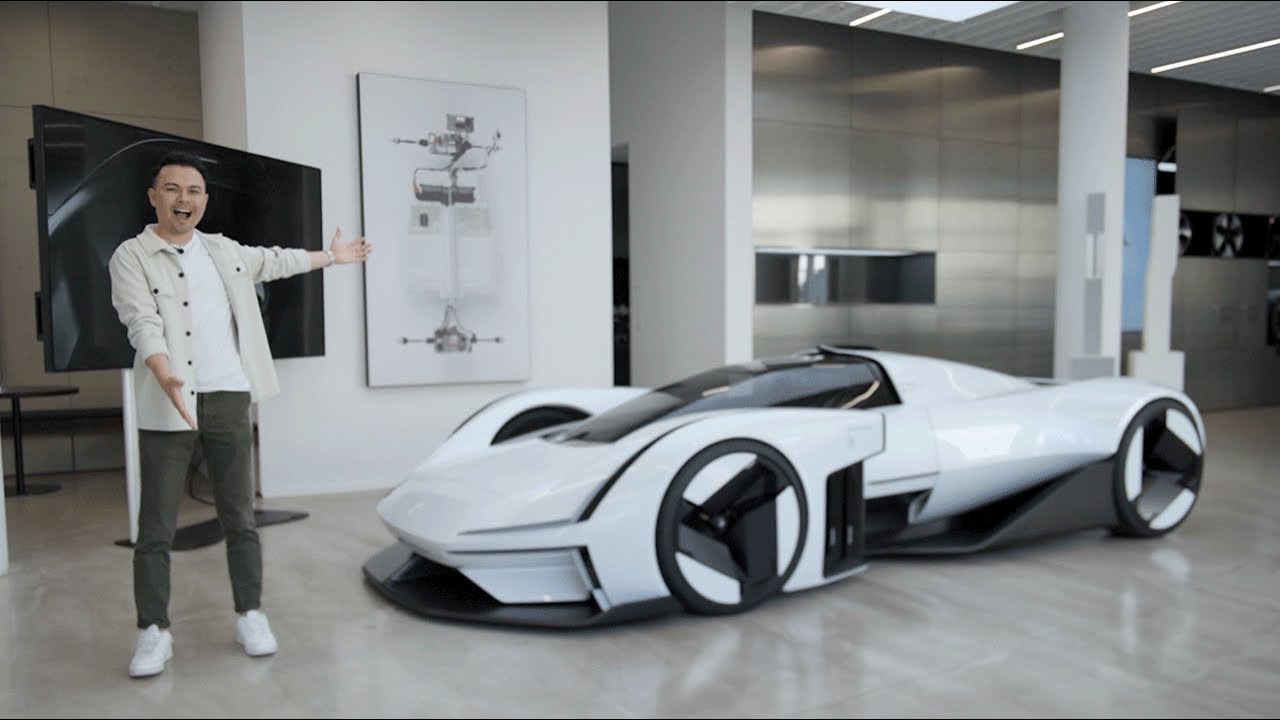
| Design Inspiration: | Hammerhead shark |
| Height: | 1.07 meters |
| Length: | 4.56 meters |
| Interior Design: | Single-seat, floating design with crescent-shaped steering wheel |
| Dashboard Design: | Minimalist, with extended display |
| Special Features: | Designed for durability and future technical upgrades |
The Polestar Synergy is a striking electric supercar unveiled at IAA Mobility 2023, born from the fusion of three winning designs out of over 600 entries in the annual Polestar Design Contest.
This electric machine, brought to life as a 1:1 scale model, showcases the collaborative genius of designers Devashish Deshmukh, Swapnil Desai, and Yingxiang Li alongside Polestar’s design team.
Drawing inspiration from the hammerhead shark, the car’s exterior features hollowed-out volumes for a sleek, durable design ready for future upgrades. Inside, the single-seat cabin offers a ‘floating’ sensation, with a crescent-shaped steering wheel and a minimalist dashboard, emphasizing performance and control.
Measuring 1.07 meters in height and 4.56 meters in length, the Polestar Synergy redefines electric supercar aesthetics and performance, proving that electric vehicles can indeed rival their internal combustion counterparts in excitement and design innovation.
4. Solar car ‘Aptera Launch Edition’
| Design Purpose: | Energy Efficiency |
| Solar Technology: | Approximately 700 watts |
| Daily Solar-Powered Range: | Up to 40 miles |
| Charging Requirement: | Potentially never for high sun exposure areas |
| Plug-in Charging Rate: | Over 13 miles per hour from a 120V outlet |
The Aptera Launch Edition is a groundbreaking solar car that represents a significant leap towards universal electric vehicle (EV) adoption and energy independence. The Launch Edition is designed with energy efficiency at its core, featuring a unique shape and constructed from ultra-lightweight and ultra-strong materials.
This allows it to glide through the air with minimal energy consumption, using only a quarter of the energy compared to other EVs and hybrid vehicles.
Equipped with approximately 700 watts of proprietary solar technology, the Aptera can drive up to 40 miles per day powered solely by the sun, potentially eliminating the need for plugging in for charging for many users.
Its solar charging package is so efficient that in sunny regions like Southern California, the average driver might never need to plug in, while those in areas with medium sun exposure, such as New York or Chicago, would only need to do so about three times a year.
The vehicle also offers impressive charging capabilities when plugged in, achieving over 13 miles of charge per hour from a standard 120V outlet.
5. Sports Car ‘Gac Barchetta’
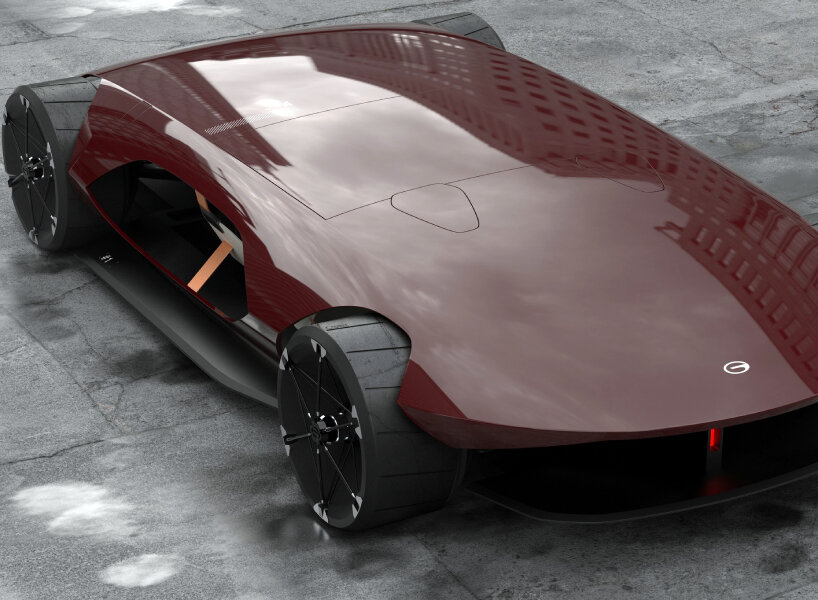
| Design Concept: | Minimalist, roofless, windshield-less electric sports car |
| Chassis: | Flattened, contains compact batteries |
| Body Material: | Mono-material aluminum, lightweight and simple |
| Interior: | Compact drive-by-wire steering wheel, seats made from recycled plastic |
| Seat Shell Weight: | 3 kilos |
| Design Inspiration: | Italian car design and in-house conceptual cues |
| Series: | First in the GAC Car Culture series |
| Design Studio Location: | Milan, Via Tortona |
The GAC Barchetta, a concept sports car unveiled by GAC Design, epitomizes the essence of minimalism in automotive design. This electric sports car stands out with its roofless and windshield-less design, presenting a sleek, maroon, flat surface when not in use, almost resembling a table.
Its design is a blend of Italian car aesthetics and in-house conceptual cues, making it a pioneering model in the GAC Car Culture series. The car’s chassis houses compact batteries, akin to a giant mobile phone, while its body is crafted from mono-material aluminum for lightness and simplicity.
Inside, the GAC Barchetta continues its minimalist theme with a compact drive-by-wire steering wheel and seats made from recycled plastic, suspended in a shell that weighs merely three kilos.
This design not only celebrates efficiency but also stands as a testament to GAC Design’s innovative approach to automotive design.
6. AI Self-driving space car ‘NIO EDEN’
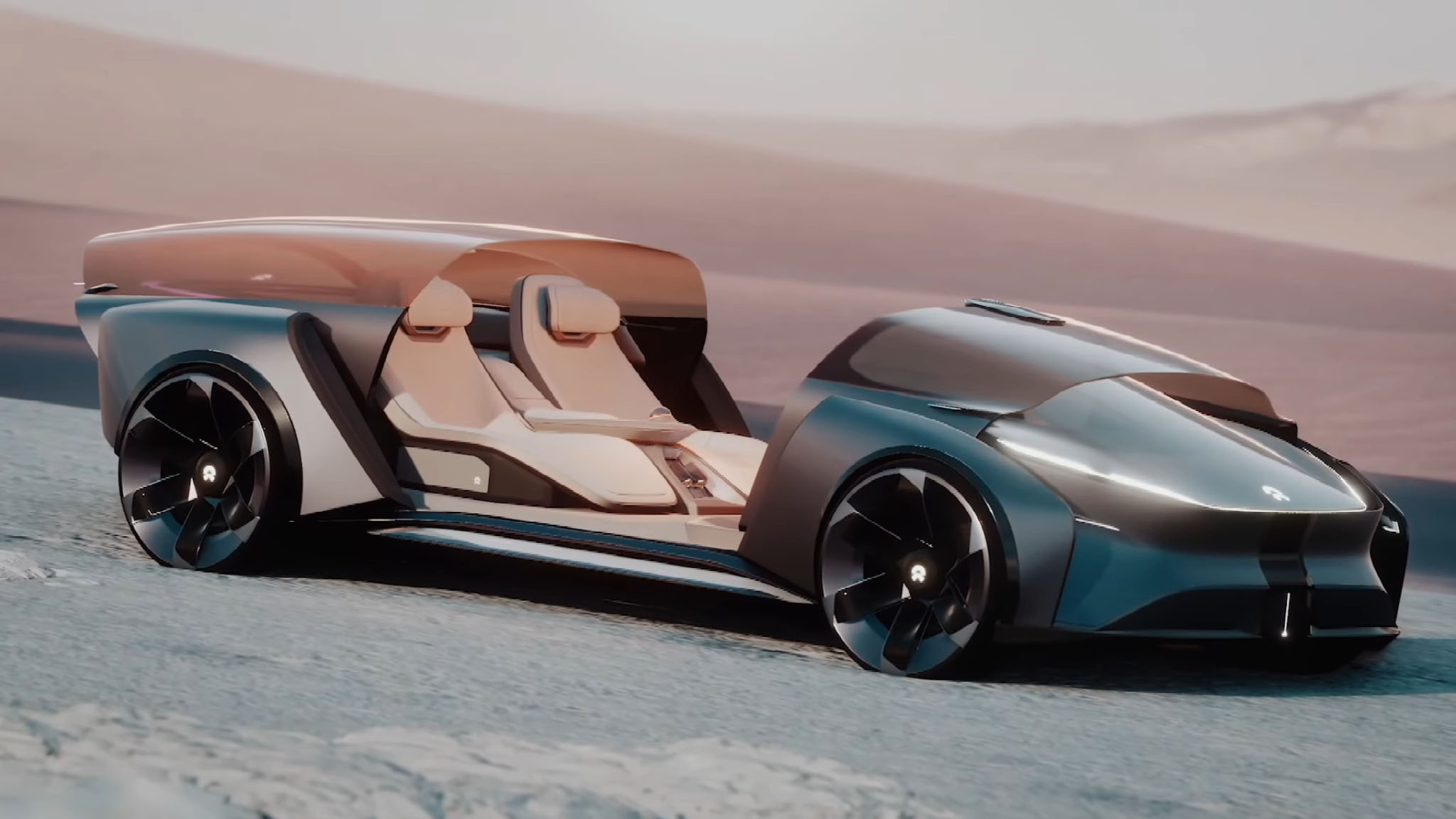
| Designer: | Joonyoung Koo |
| Concept: | AI Self-driving Space Car |
| Exterior Design: | Autonomous, low-level hypercar with LED lighting and an open-lip front design |
| Door Mechanism: | Doors, windows, and sunroof combined into a single sliding mechanism |
| Interior: | Spa-like with two reclined seats in soft pink, featuring a rollable globe control |
| Philosophy: | Integration of nature, design, technology, and people, powered by AI |
The NIO EDEN, a concept space car designed by Joonyoung Koo for his Master’s thesis at Hochschule Pforzheim University, embodies the fusion of artificial intelligence with autonomous driving technology. Inspired by the NIO brand’s philosophy,
Project EDEN aims to redefine the relationship between humans, nature, and AI, offering a glimpse into a future where vehicles enhance our freedom and connectivity to the world around us. The car’s design features a striking exterior with LED lighting and a unique door mechanism that merges doors, windows, and sunroof into a single sliding entry, revealing a spa-like interior with two reclined seats in soft pink.
This space car is not just about aesthetics; it’s about creating an immersive experience that blends the high-tech with the natural, powered by AI to offer both an exhilarating driving experience and a tranquil space for relaxation.
7. Dodge Charger Daytona SRT EV
- Power: Up to 600 horsepower
- Electrical System: 800-volt architecture
- Estimated Range: Approximately 500 miles
8. Alfa Romeo 33 Stradale Supercar
- Anticipated Launch: 2024
- Design Influence: Retro-inspired aesthetics
- Powertrain: Potentially the final non-hybrid model
- Expectations: Precedes the electric Giulia launch
9. Aston Martin Valhalla
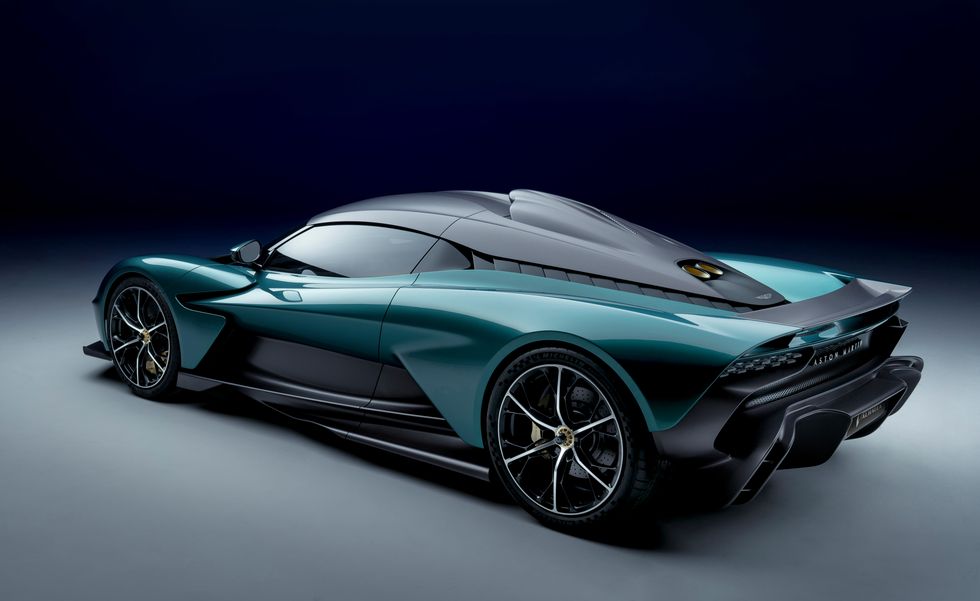
- Launch Timing: Early 2024
- Configuration: Mid-engined
- Engine Type: V8 with flat-plane crank
- Horsepower: Over 900 hp
- Acceleration: 0-60 mph in approximately 3 seconds
The Aston Martin Valhalla is equipped with a 998-horsepower hybrid engine, combining a 4.0-liter twin-turbo V8 with three electric motors. Aston Martin plans to manufacture 999 units of this model. The recently released images showcase the final production version, distinct from the prototype seen in the James Bond film “No Time To Die.”
Priced at around $800,000, not including additional options, the Valhalla features a carbon fiber chassis. This model represents Aston Martin’s ambitious move to compete with elite brands like Ferrari, McLaren, and Lamborghini as it is highlighted by Forbes.
10. Lincoln Star EV
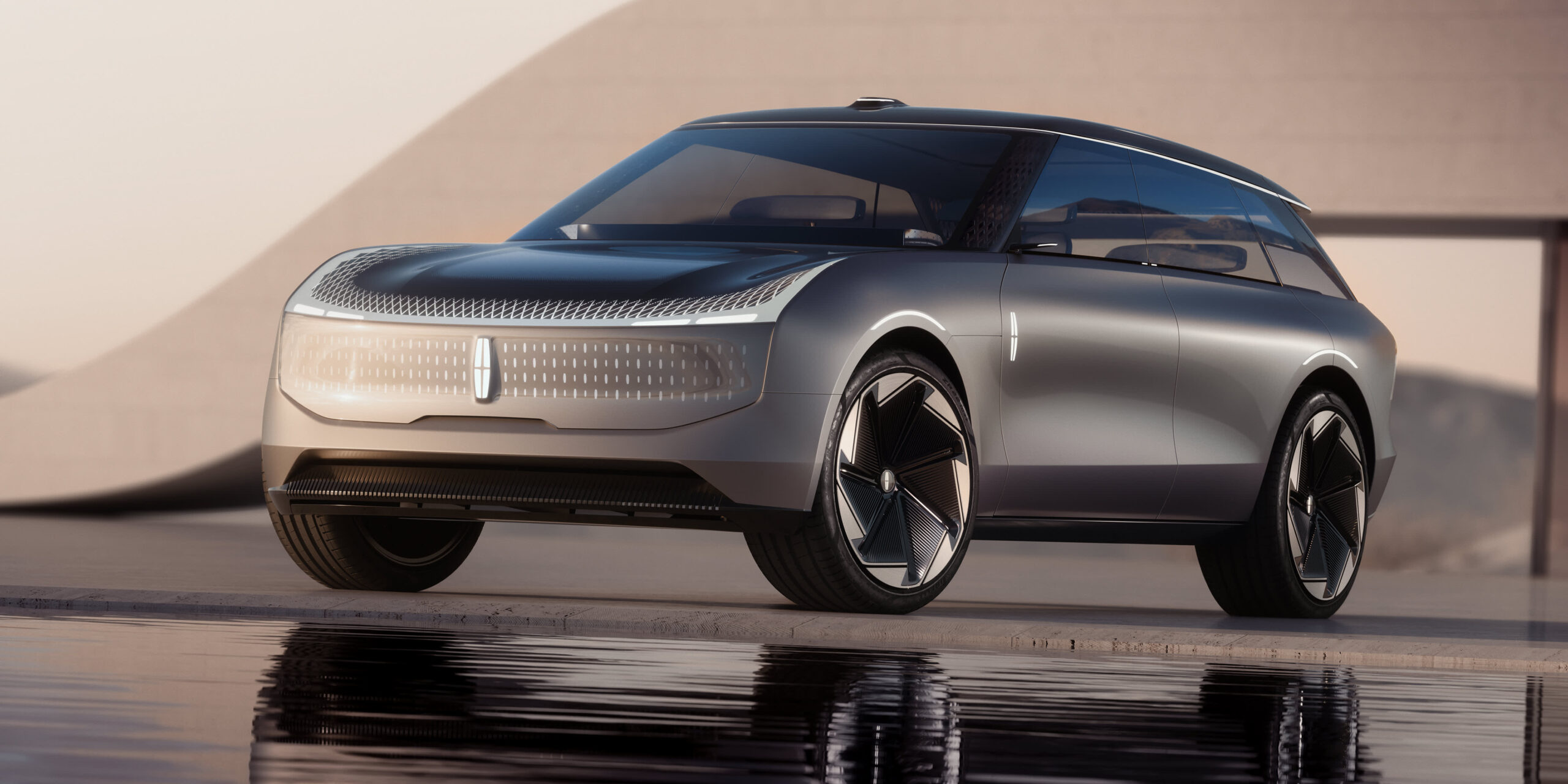
- Anticipated Arrival: 2025
- Design Inspiration: 2022 Star concept
- Category: Luxury electric SUV
- Expected Traits: Elegant styling, upscale ambience
- Projected Starting Price: Approximately $75,000
The 2025 Lincoln Star features a design that is a unique blend of a spaceship, and Lincoln’s own Corsair and Nautilus models. It stands out with its striking and dynamic front end, while adopting a longer and lower profile compared to the Corsair and Nautilus.
This model represents Lincoln’s forward-thinking approach and strategy for its upcoming electric vehicles. Lincoln states that the Star introduces a new design philosophy focused on aesthetics, human-centric features, smoothness, and creating a tranquil interior environment.
11. Audi’s Upcoming Electric Vehicle
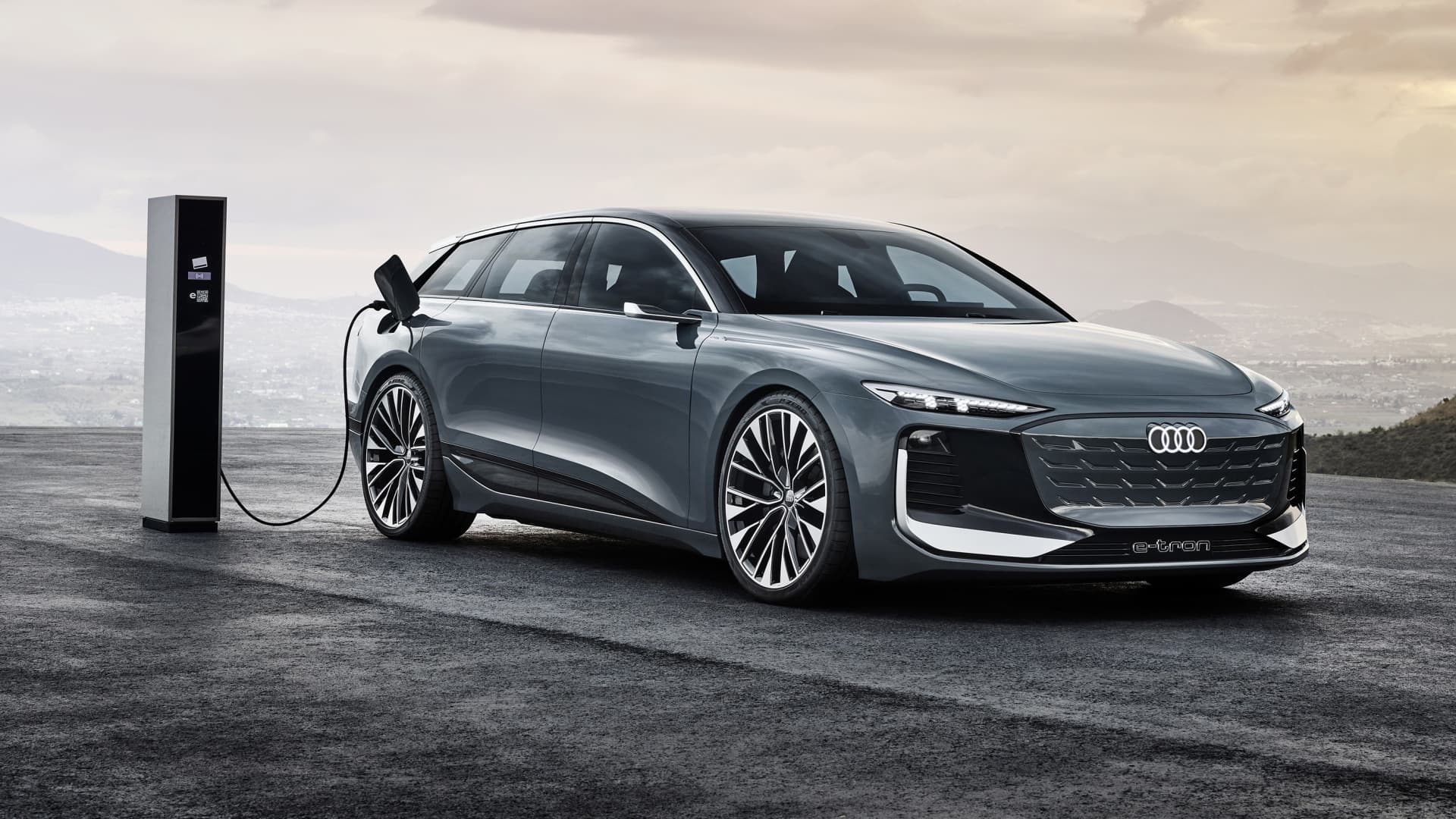
- Upcoming Market Introduction: Arriving in 2024.
- Powertrain: Dual electric motors.
- Architecture: Built on the advanced PPE platform.
- Charging: Utilizes a high-capacity 800-volt system.
- Range: Capable of traveling up to 400 miles on a single charge.
- Performance: Expected to produce 469 horsepower.
12. Bentley EV
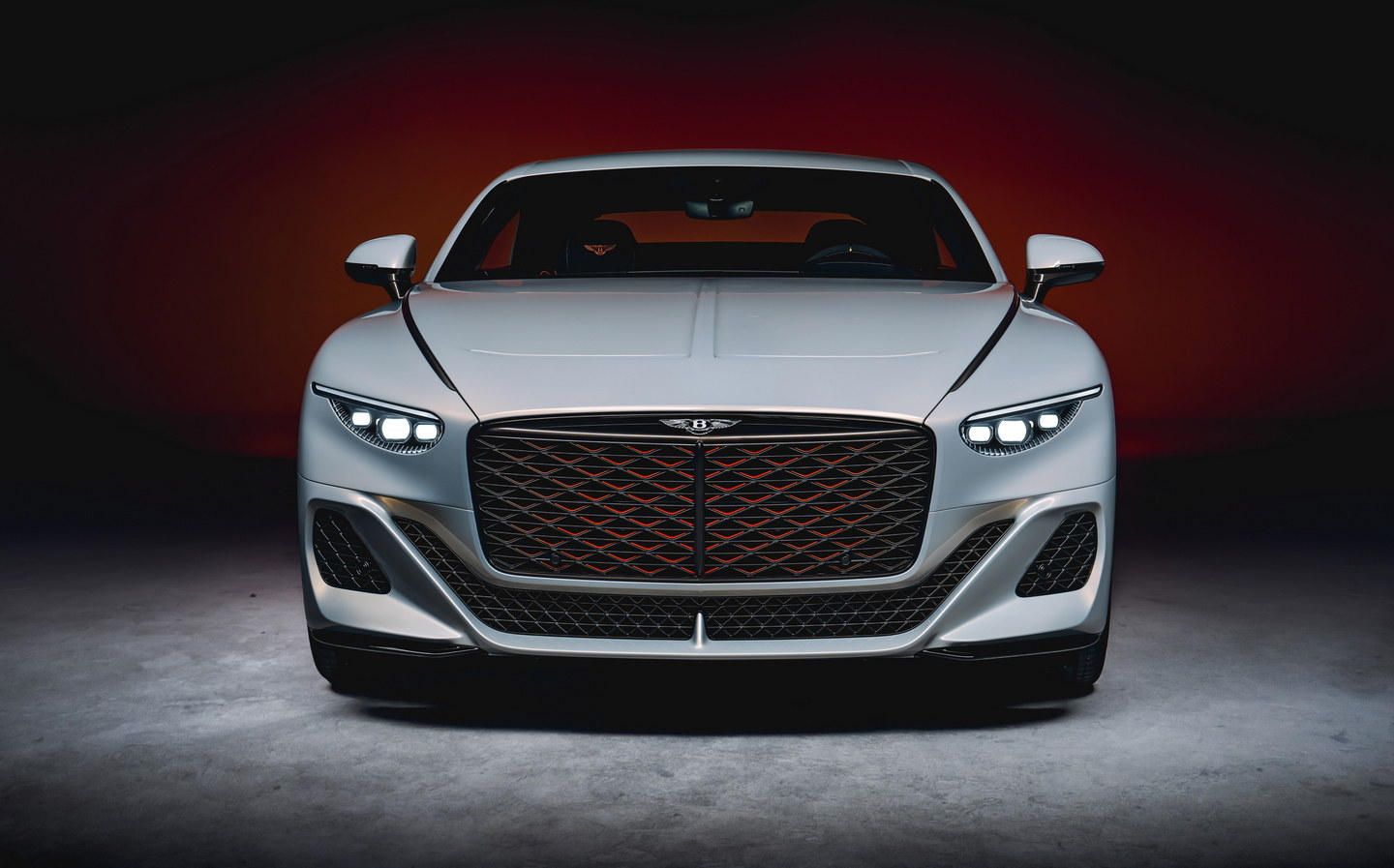
- Arrival: Scheduled for 2026
- Strategy: Transition to exclusively electric models beginning 2026
- Design Cues: Influenced by the EXP 100 GT concept revealed in 2019
With a projected 0 to 60 mph acceleration of merely 1.5 seconds, this automotive marvel promises speed and a sensory experience beyond compare as it is stated in Topspeed.
13. Toyota GR Electric Sports Car
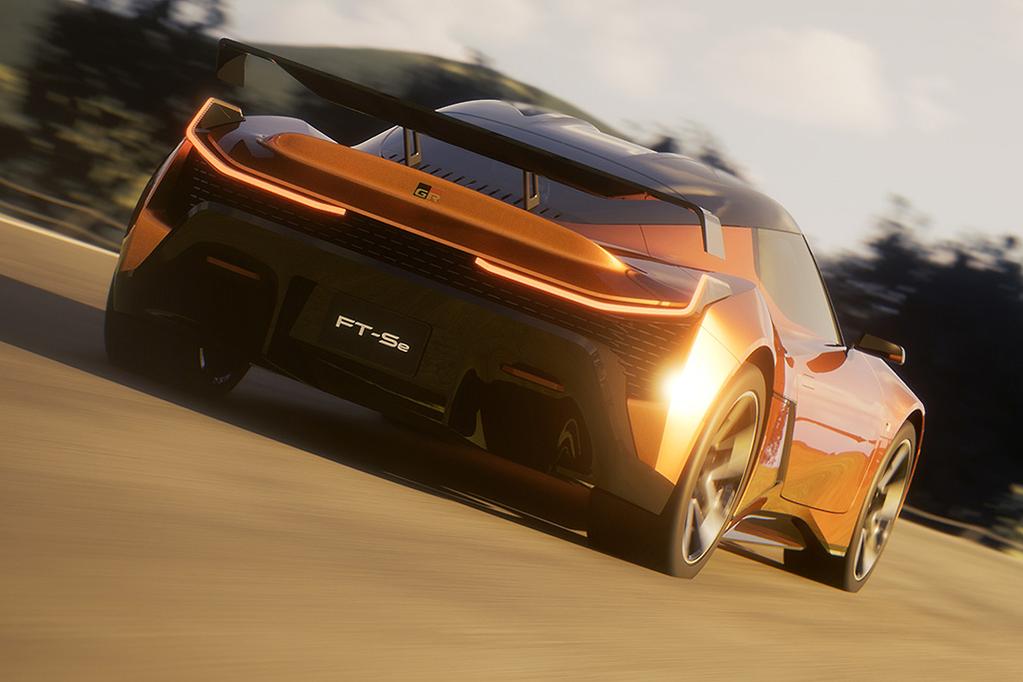
- Arrival Year: 2026
- Brand: Toyota GR
- Features:
- Engine sound simulation
- Virtual manual transmission (akin to new Lexus sports model)
14. BMW Neue Klasse EV
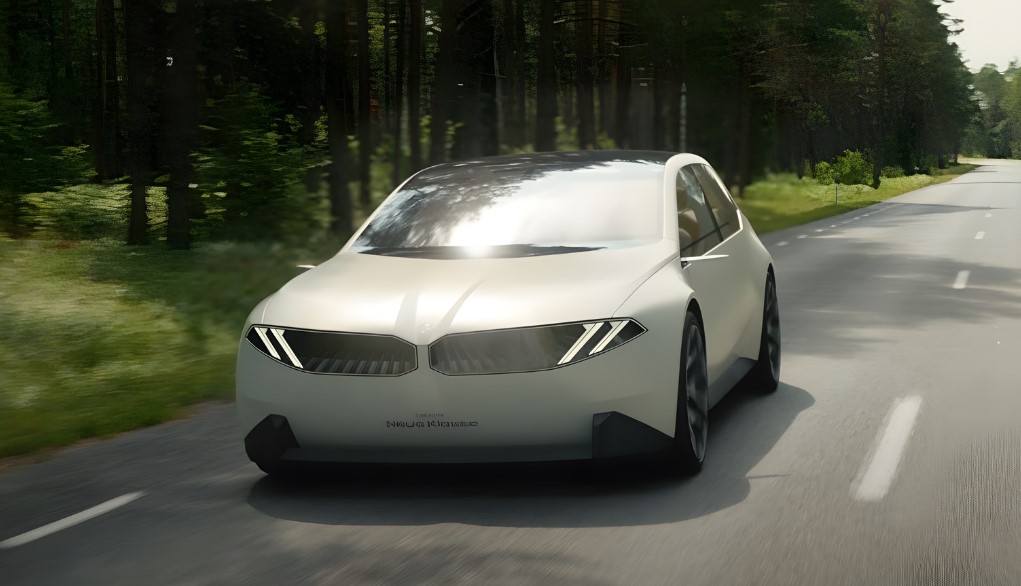
- Launch Year: 2025
- Architecture: Innovative
- Inspiration: i Vision D concept
- Characteristics:
- Enhanced electric range
- Advanced technology
- Expectations: Close to concept design
- Additional Information: Anticipated details later in 2025
The production variant is anticipated to mirror its conceptual inspiration closely. Further specifics about this New Class are expected to emerge as the year progresses.
15. Chevrolet Corvette ZR1 / Zora
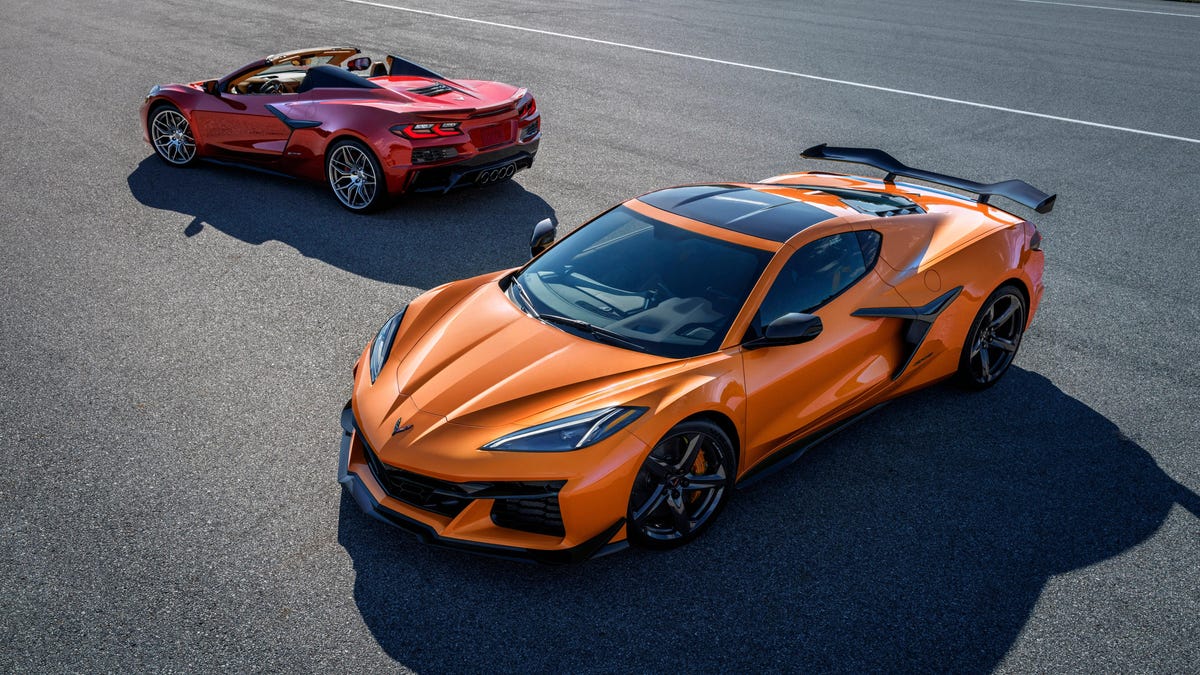
| Year Expected | Powertrain | Performance |
|---|---|---|
| 2025 | Twin-Turbo 5.5L V8 | 0-60 in 2.5 sec |
16. Ferrari Hypercar
- Expected Arrival: 2025
- Spiritual Lineage: Successor to the iconic LaFerrari
- Design Tease: Spotted prototypes suggest an aggressive aesthetic with an S-duct in the hood and a pronounced rear spoiler.
- Performance Evolution: Possibility of transitioning from the traditional V12 to a more compact, twin-turbo V8 engine.
Ferrari’s upcoming flagship hypercar, currently referred to as the F250, is likely to adopt a different name for its final production model, potentially steering away from its past naming conventions like the F40 and F50. The company might draw inspiration from models like the Enzo and LaFerrari, which embraced a nostalgic approach, or follow the equine-themed naming as seen with the Purosangue according to Motor1.
Under the hood, this new hypercar might mark a departure from Ferrari’s traditional V12 engines. Initial reports and spy photos suggesting a hybrid powertrain indicate the possibility of a V6 engine, similar to the one in the 296 GTB, especially given the electrical warning stickers observed on test vehicles.
This V6 engine, already producing 680 horsepower in the 296 GT3 race car, could be paired with an electric motor for a combined output exceeding 1,000 horsepower. This would be a significant increase over the current SF90’s 986 hp, aligning with Ferrari’s trend of continual performance enhancements.
17. Hyundai N Vision 74
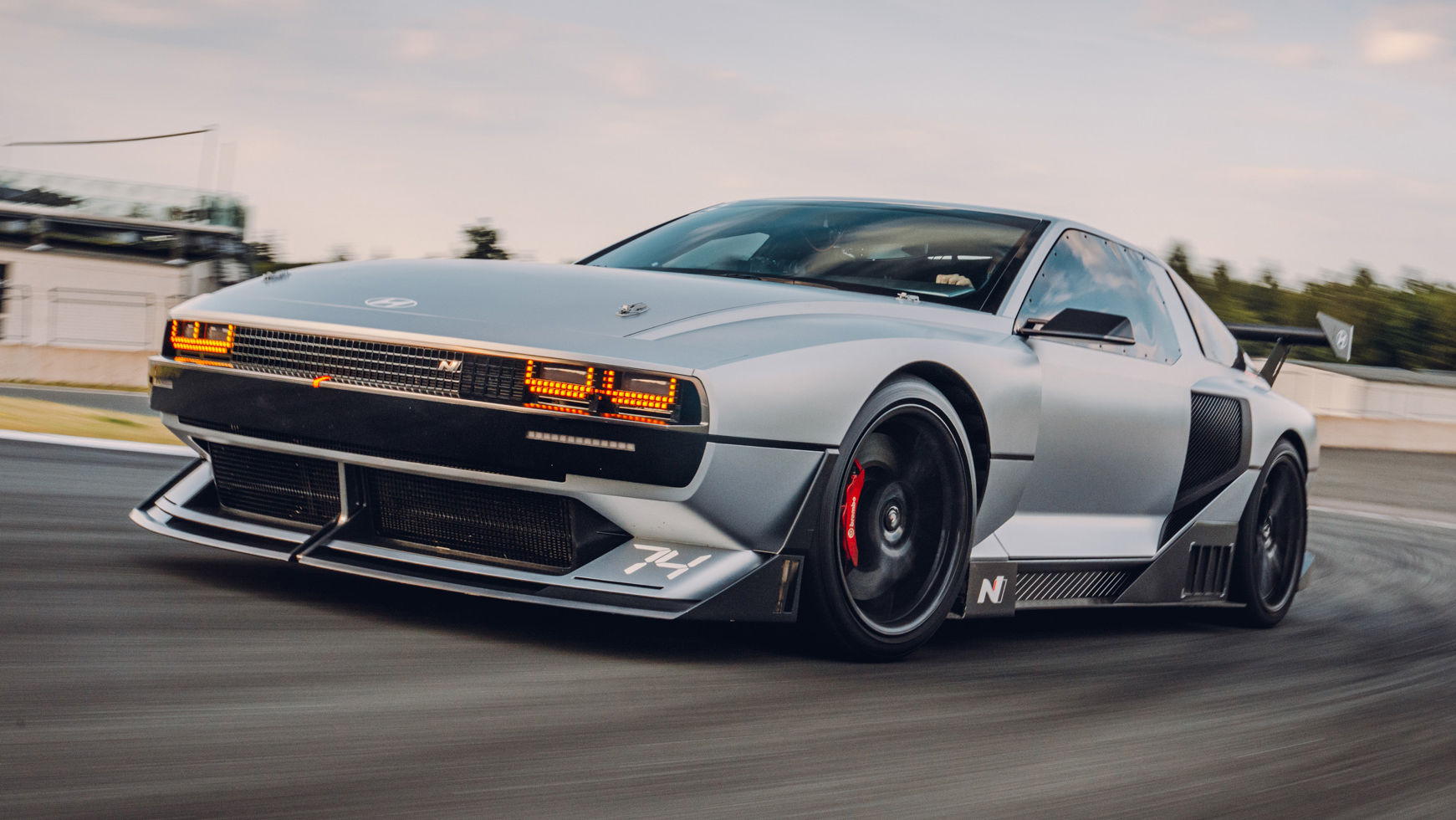
- Production Status: Uncertain
- Initial Display: Premiered in 2022
- Production Speculation: Mixed signals from Hyundai
18. Lamborghini Revuelto SVJ
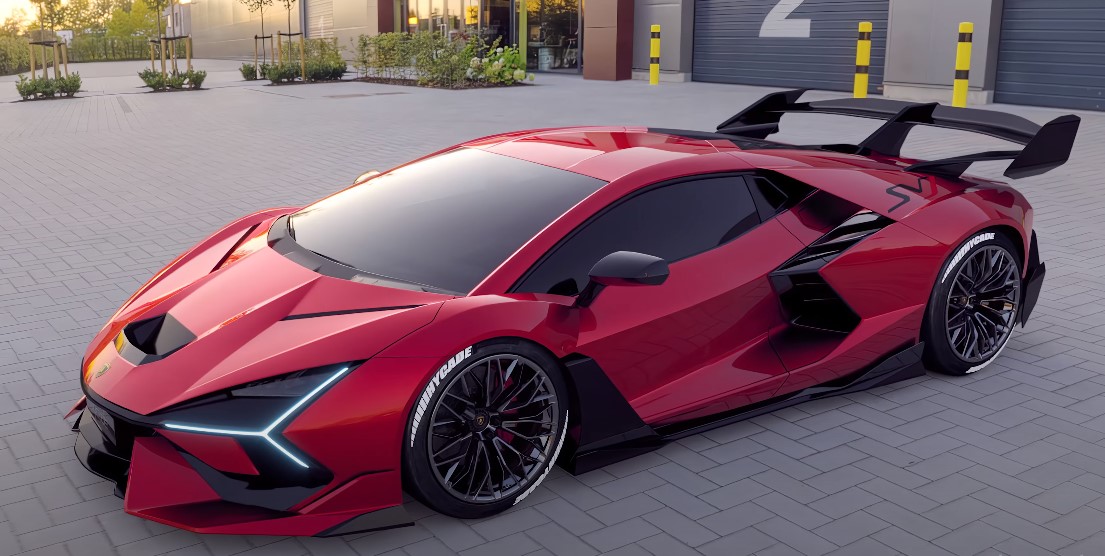
- Anticipated Version: A more potent variation, the Revuelto SVJ, is speculated to be in the pipeline.
- Powertrain: Predicted to retain the hybrid V12 but enhanced for increased output.
- Design Language: Visual speculations suggest a bolder aesthetic alongside the amplified performance.
19. Lexus LFA EV
- Predecessor: Lexus’s new EV: Spiritual LFA successor.
- Speed: 0-60 mph in low 2 seconds.
- Design: Blends McLaren 720S and Toyota Supra.
- Range: 430-mile range with solid-state battery.
Additionally, it may feature a unique trait for electric vehicles: a manual gearbox. The launch is anticipated for 2025, stirring excitement for this new chapter in Lexus’s legacy of performance vehicles projecting by Car and Driver.
20. Mercedes-AMG GT
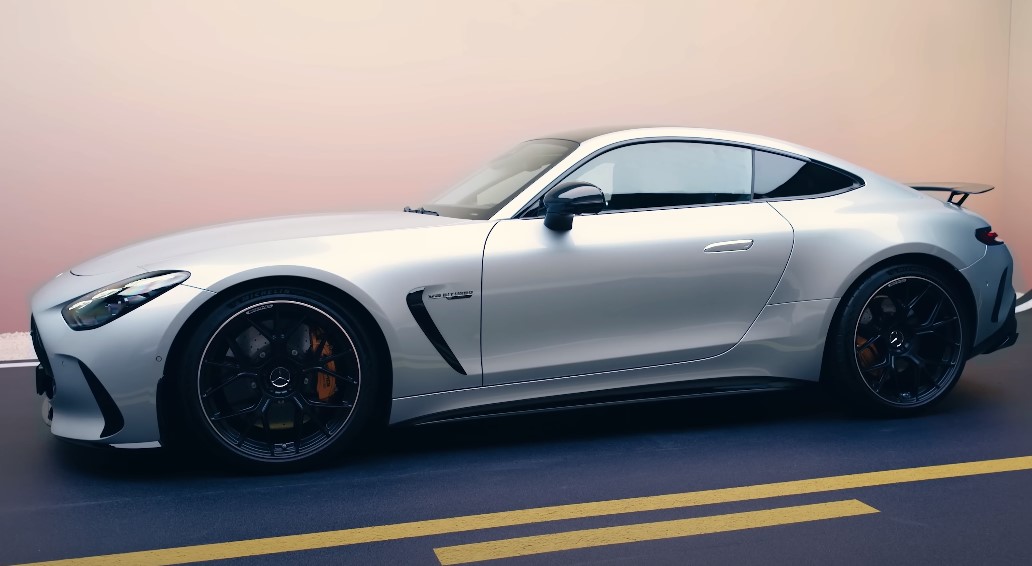
- Engine: AMG GT adds GT 55 (469 hp) and GT 63 (577 hp) with a twin-turbo V-8.
- New GT 43 hinted by spy shots with round exhaust, suggesting a different engine.
- Likely shares SL 43’s 2.0L turbo-4, electric turbocharger, and 48V mild-hybrid.
- Design: GT 43 expected to feature rear-wheel drive like SL 43.
21. Mercedes-Benz EQA Electric Sedan
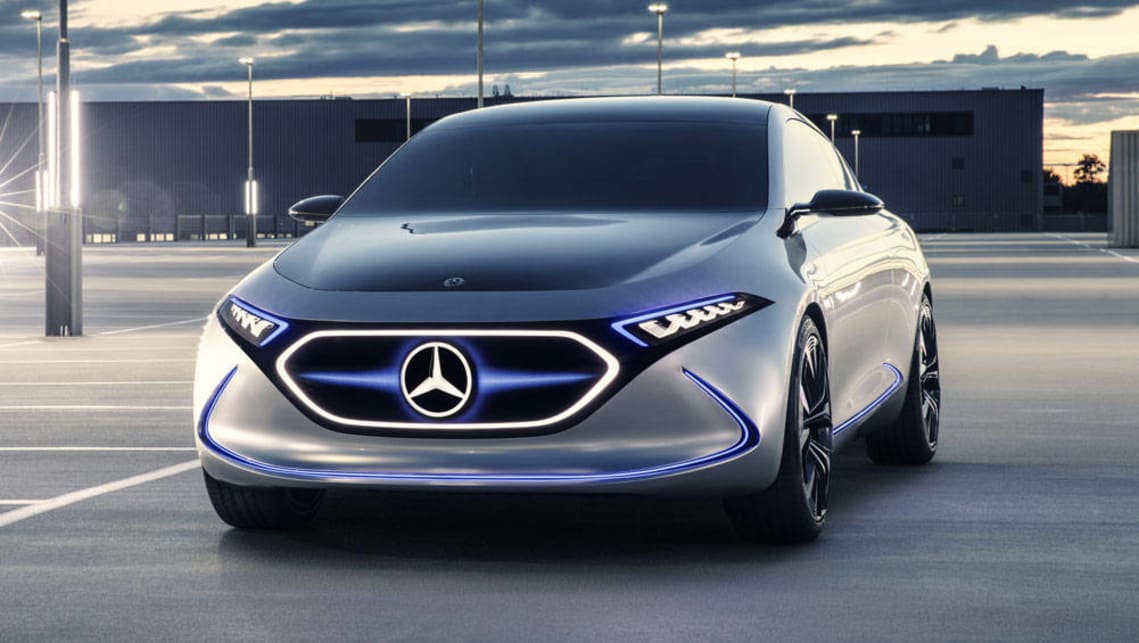
| Fuel Type: | Electric |
| Horsepower: | 187 HP / 190 PS / 140 kW |
| Maximum Torque: | 276 lb-ft / 375 Nm |
| Top Speed: | 99 Mph / 160 km/h |
| Range (NEDC): | 302 miles / 486 km |
22. Polestar 5
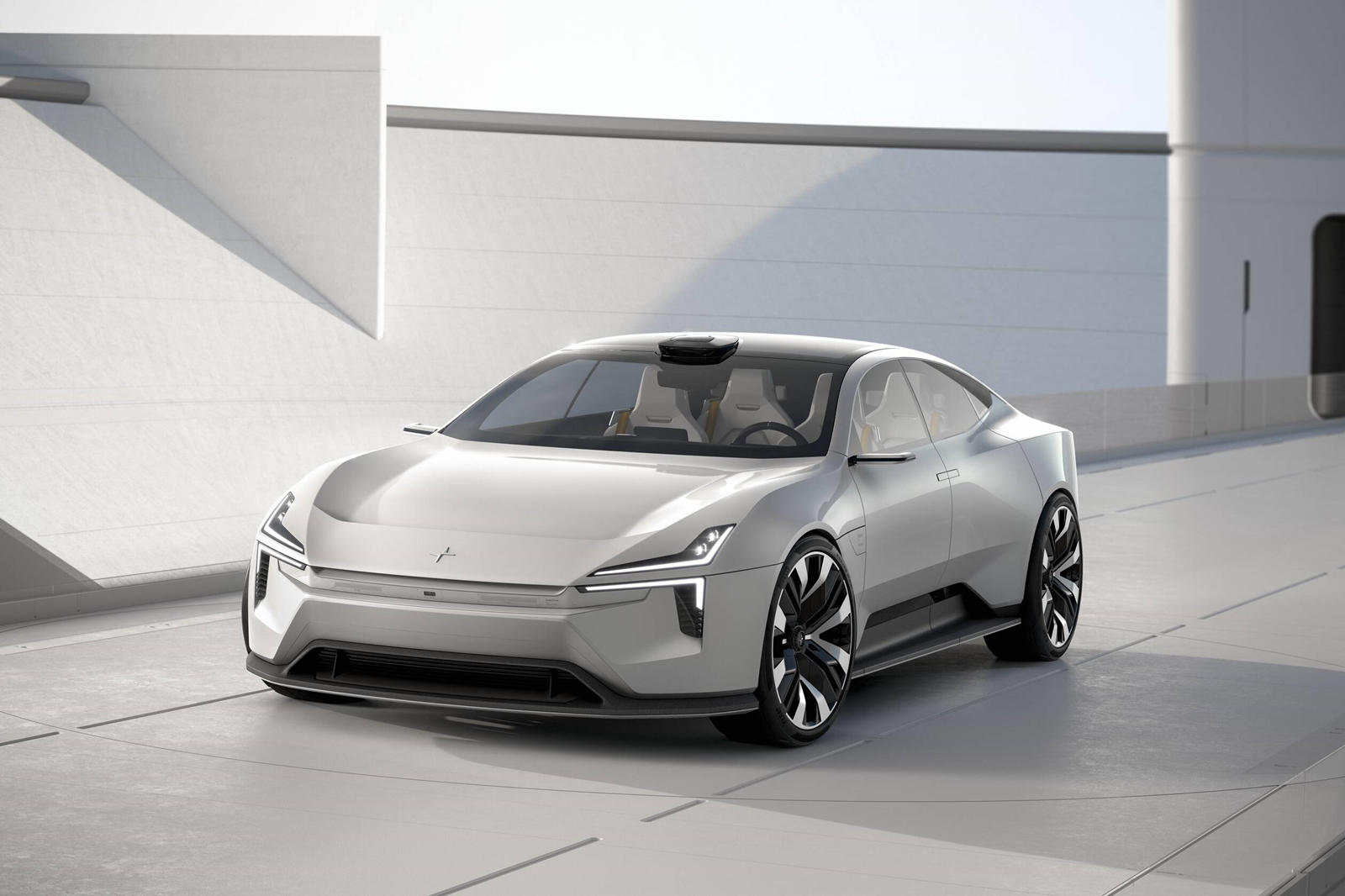
- Debuting: 2024
- Positioning: Premium flagship electric vehicle
- Rivals: Porsche Taycan, Audi E-Tron
- Performance: Up to 884 horsepower
- Charging Capability: 800-volt system
- Fast Charging: Approx. 80% in 20 minutes (DC fast charger)
- Starting Price: Around $90,000
- Noteworthy: A strong contender in luxury electric vehicle market, offering rapid charging times and robust power.
23. Polestar O2 Convertible
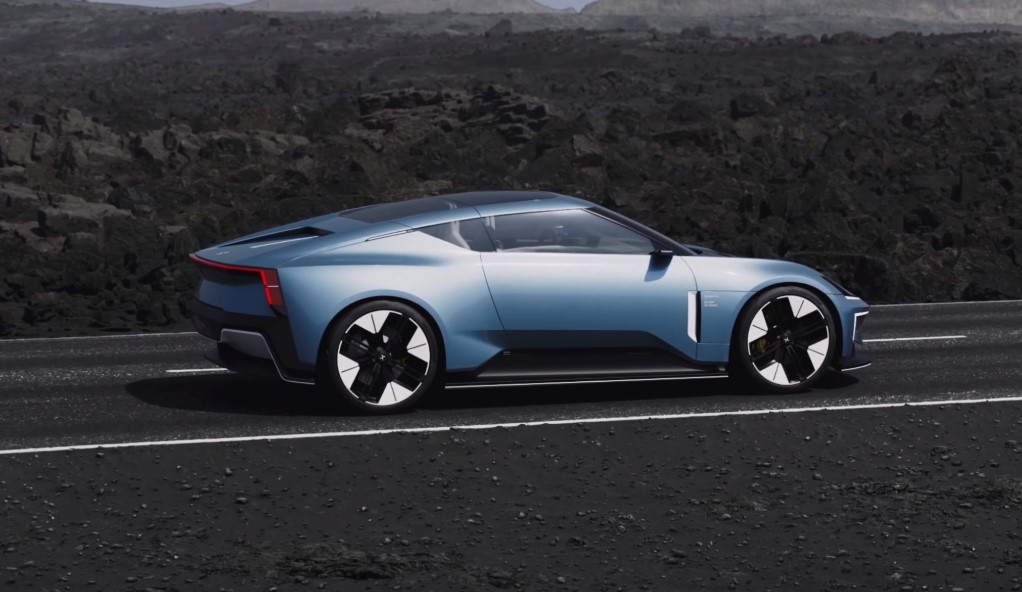
- Introduction: 2026 is the anticipated arrival year for the Polestar O2 Convertible.
- Designation: It will hit the market under the name – Polestar 6.
- Performance: Expect over 800 horsepower from this electric roadster.
- Notability: It marks Polestar’s debut in the convertible segment and stands out as a rare all-electric convertible option.
24. Porsche 718 Boxster / Cayman EV
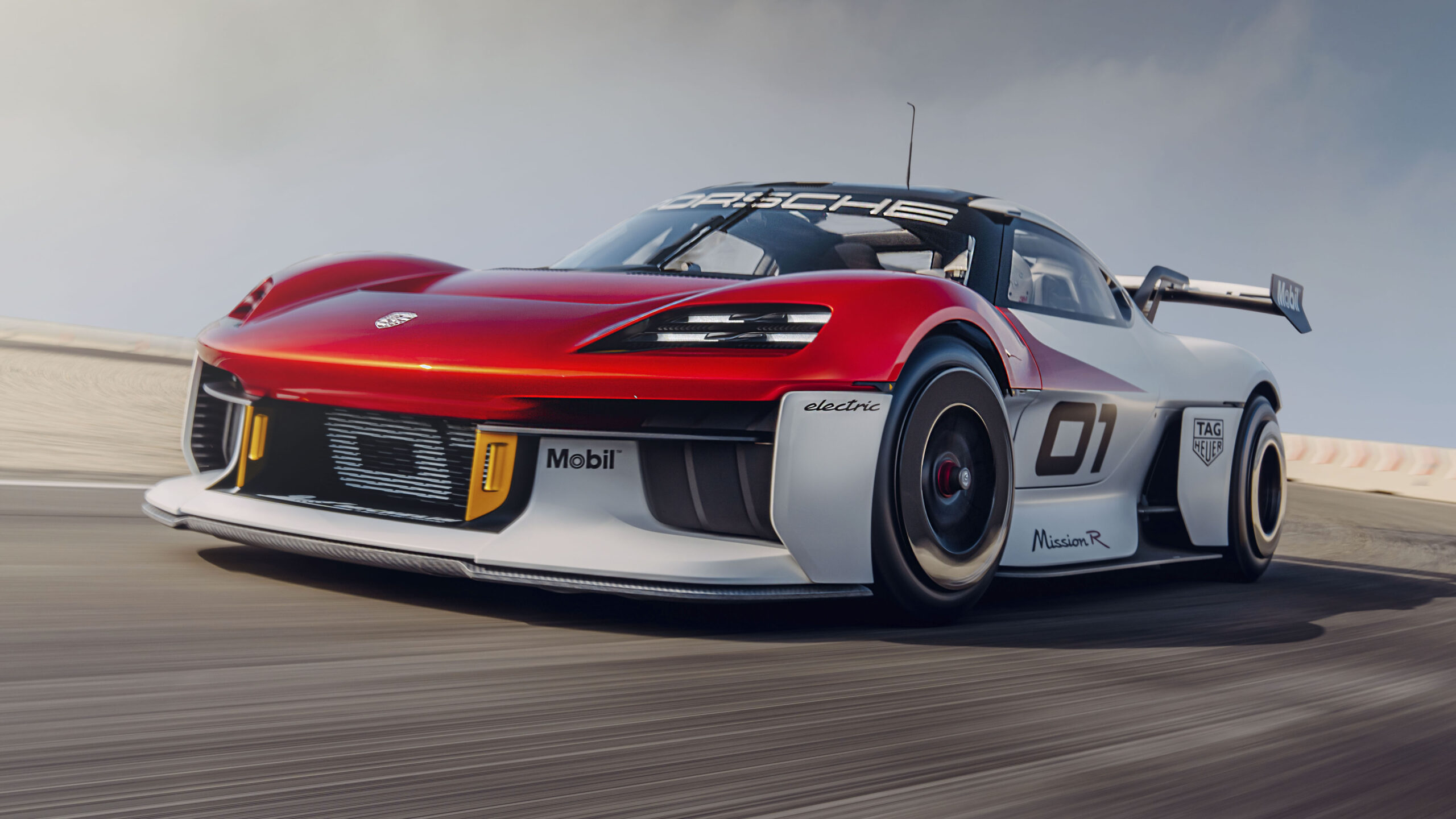
- Transition to Electric: Slated for release in 2025, the Porsche 718 Boxster and Cayman models will transition from gasoline engines to an electric platform according to Motorauthority.
- Electric Platform Utilized: Utilization of the Volkswagen Group’s PPE EV platform is expected for this transformation.
- Power Expectations: A minimum of 450 horsepower is anticipated for the entry-level variants.
- Weight Management: A key focus for Porsche is the management of the vehicles’ curb weight to maintain performance and handling characteristics.
- Trim Variations: Additional, more powerful trims are planned to be introduced in the future.
25. Tesla Roadster Update
- Projected Production: Initiation in 2024
- Availability: Possible release for sale in 2025
26. Toyota GR Prius
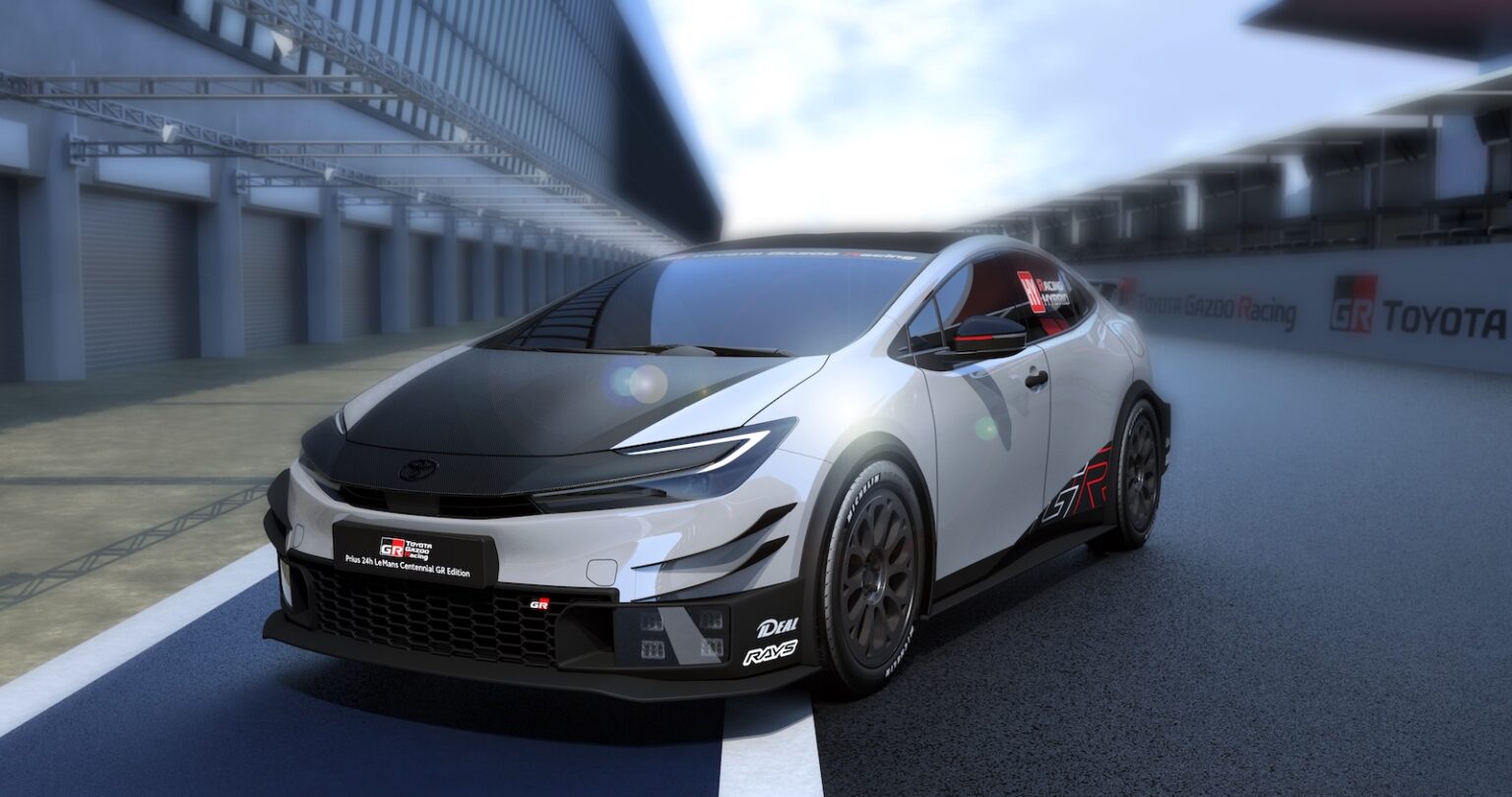
- Design: More aggressive aesthetic
- Aerodynamics: Improved for performance
- Wheels and Tires: New selections expected
- Power: Possible increase, specifics undisclosed
While Toyota has yet to confirm the exact specifications, the evolution of the Prius into a sportier domain within the realm of SUV-heavy markets is an intriguing development.
27. Alfa Romeo Giulia Quadrifoglio EV
- Debuting in: 2025
- Power Outlook: Up to or exceeding 1,000 HP
- Drivetrain: All-electric
- Variants: Possibility of additional body types, including a wagon
28. Chevrolet Equinox / EV
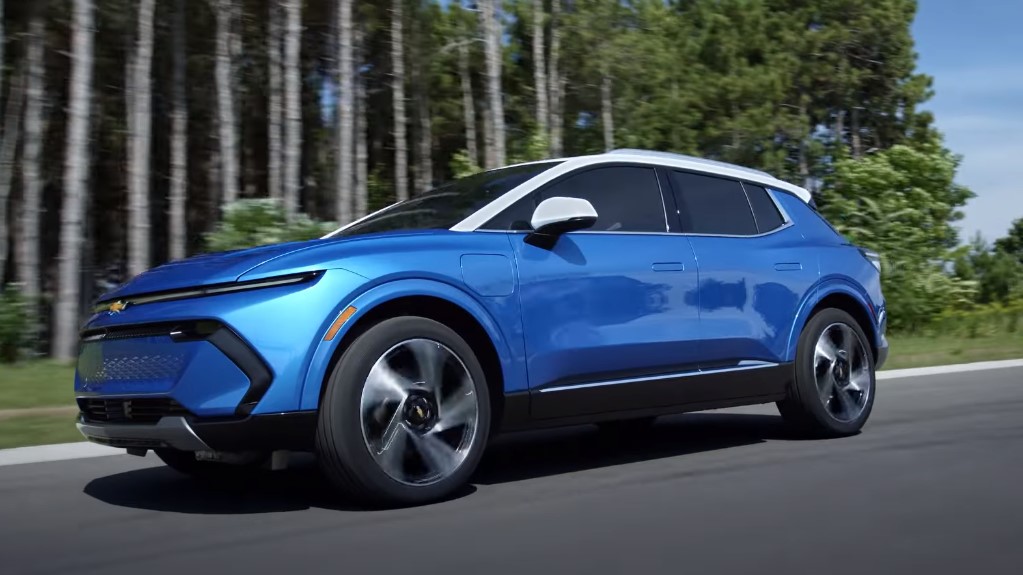
- Availability: Early 2024
- Versions: Combustion engine and electric
- Design:
- Gas model: New robust styling with prominent grille
- Electric model: Previewed as a concept vehicle
29. Fisker Pear
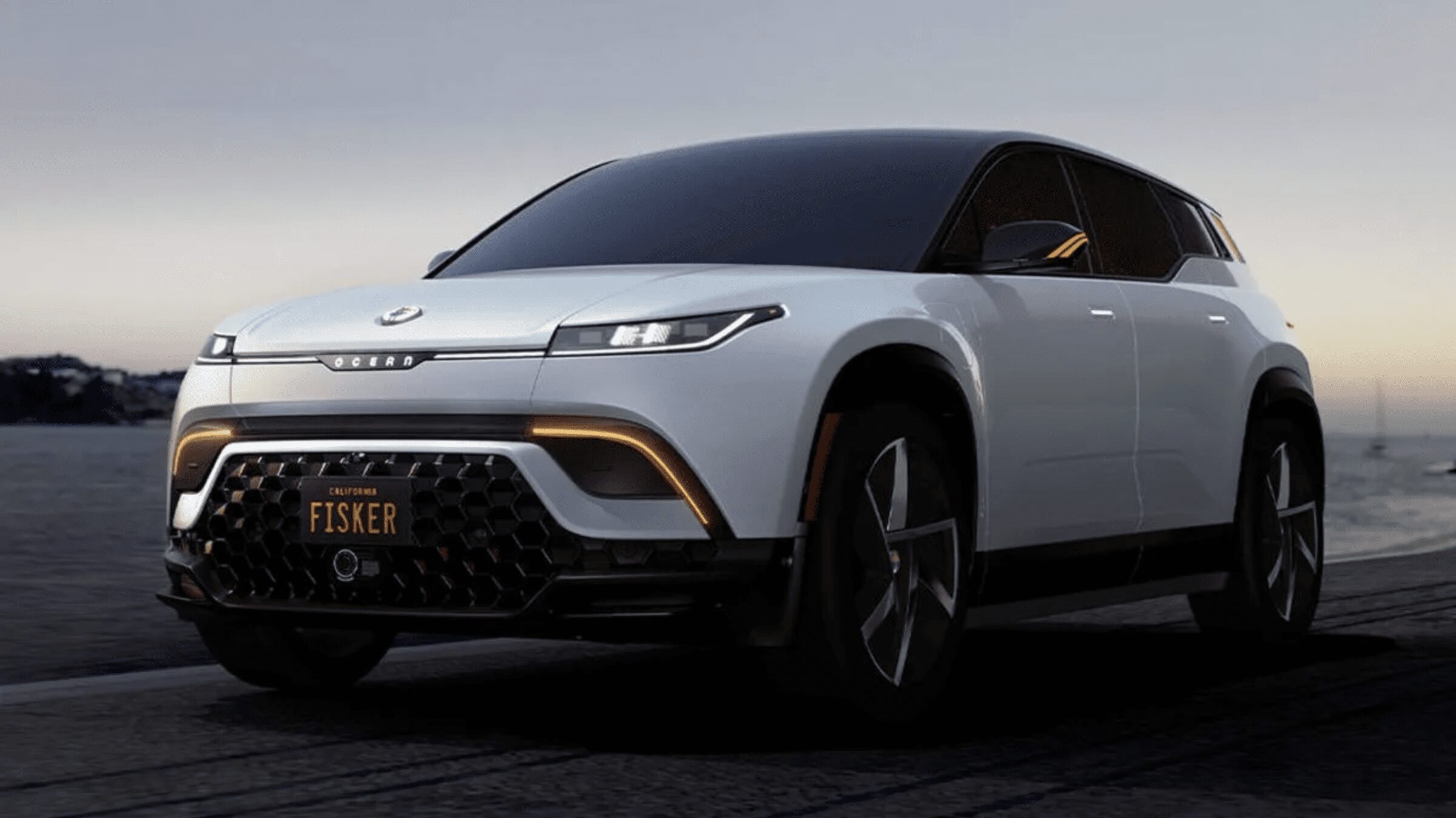
- Drive: Rear-wheel (single motor) and all-wheel drive (dual motor).
- 0-60 mph: 6.3 seconds (all-wheel drive).
- Battery: Two sizes, 180 miles and 320 miles range.
- Interior: Seats up to six, minimal features, modern infotainment.
- Extras: Drawer-style trunk, power-retractable cargo door.
30. Genesis GV90
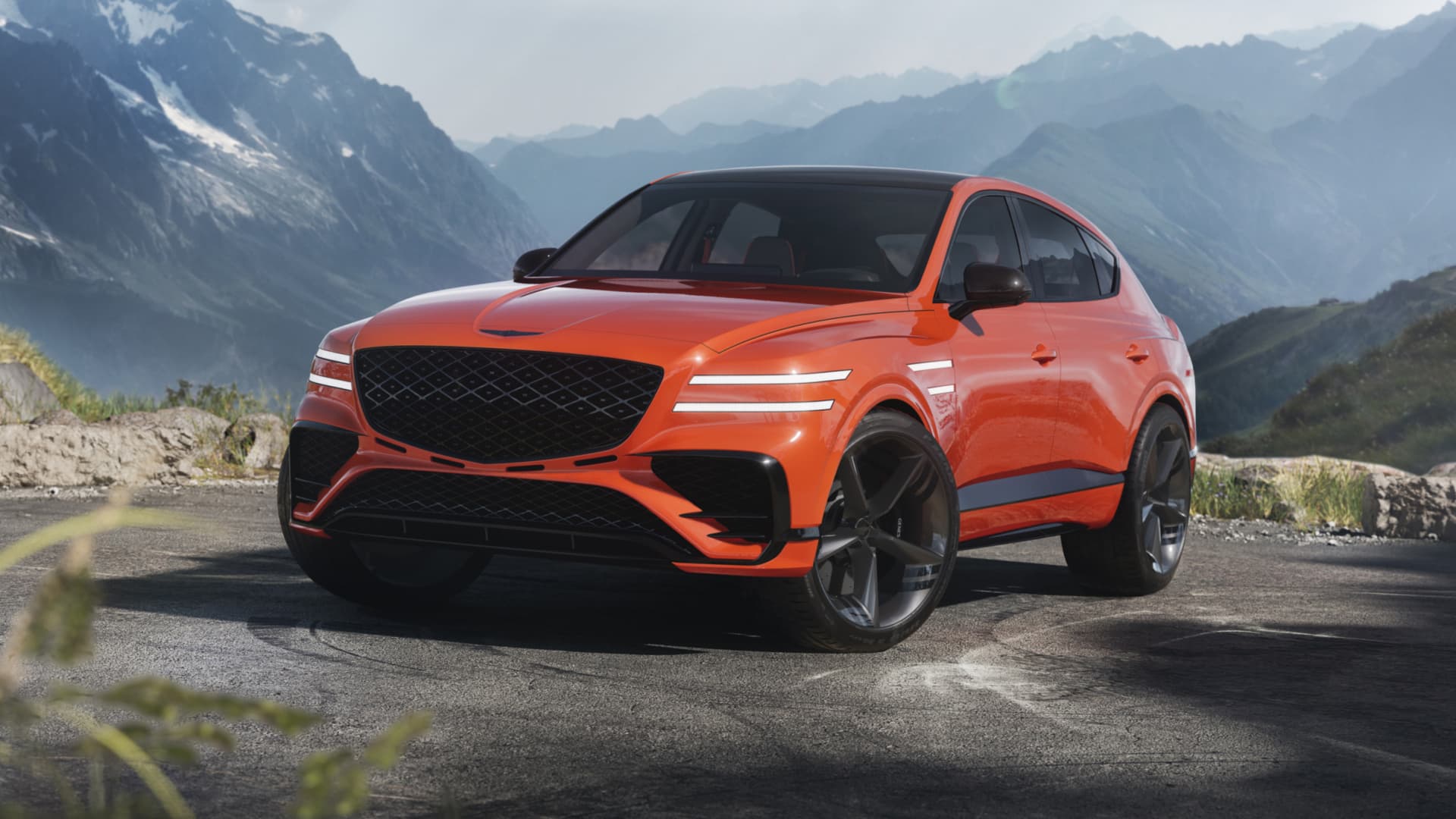
| Platform: | E-GMP (Electric-Global Modular Platform) |
| Design: | Three-row electric SUV with flat floor architecture |
| Expected Features: | Dual motors, all-wheel drive |
| Year of Release: | 2024 |
31. Hyundai Ioniq 5 N
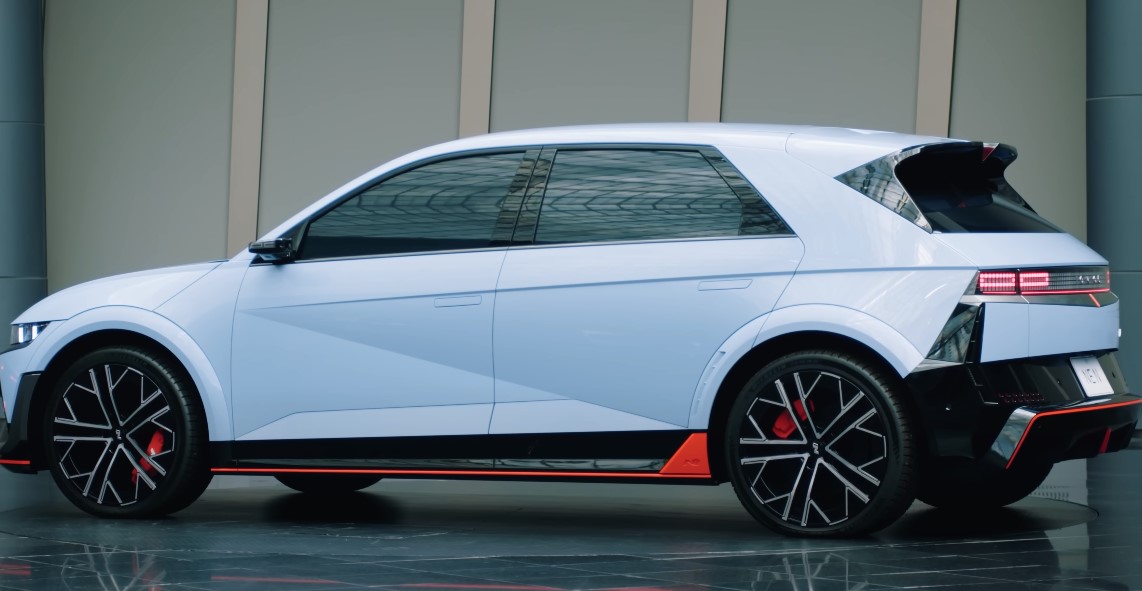
- Launch Year: March 2024
- Powertrain:
- Horsepower: 600 hp
- Torque: 600 lb-ft
- Battery Technology: Advanced iteration
- Driving Range: Slightly below current AWD model
- Comparable Models:
- Performance & Price: Matches or exceeds Kia EV6 GT
32. Jeep Recon
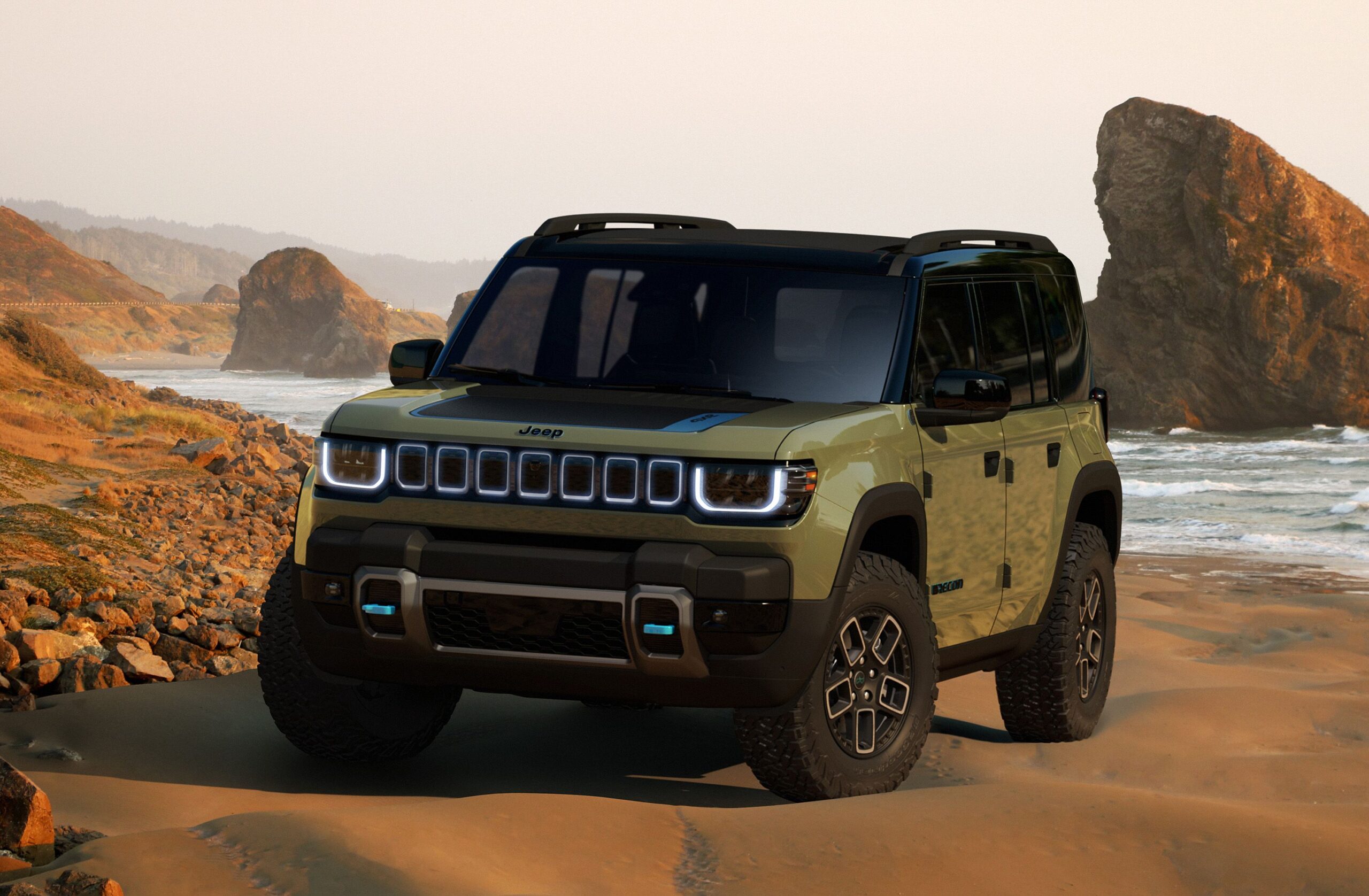
- Release Date: Slated for 2024
- Heritage: Inherits the Wrangler’s DNA
- Design:
- Doors: Detachable
- Roof: Can be removed
- Capability:
- Off-road readiness with Jeep’s Selec-Terrain system
- E-locker axle technology
- Robust off-road tires
- Platform: Built on the Stellantis STLA large platform
- Performance: Specifications on range and power yet to be disclosed
33. Lucid Gravity
- Drive: All-wheel with two electric motors.
- Range: Exceeds 440 miles (top models), smaller battery for lower trims.
- Seating: Two- and three-row versions, up to seven passengers.
- Cargo: Fold-flat seats, front trunk for extra space.
- Interior: Luxurious materials, 34-inch curved digital display.
- Competition: Audi Q8 e-tron, Cadillac Lyriq, Jaguar I-Pace, Tesla Model X.
- Launch: New for 2025, sale starts end of 2024.
- Pricing: $80,000 to $250,000; models from Pure to Sapphire.
34. Mercedes-Benz EQG

- Anticipated Market Arrival: 2024
- Innovative Battery Tech: Utilizes silicon-anode technology for enhanced range and quicker charging.
- Design Philosophy: Electric iteration reminiscent of the classic G-Class SUV styling.
- Performance: Expected to deliver impressive electric vehicle capabilities.
- Availability: Prospective debut on German streets with sales commencing in 2024.
The Mercedes EQG concept, first introduced a few years ago, is nearing its market debut, much to the anticipation of potential buyers. The electric SUV will be showcased as a prototype at the CES technology show in Las Vegas this January, with a full reveal anticipated soon after.
While pricing details are still under wraps, it’s anticipated that the EQG will carry a premium price tag, likely starting at over £100,000.
35. BMW M2 CS
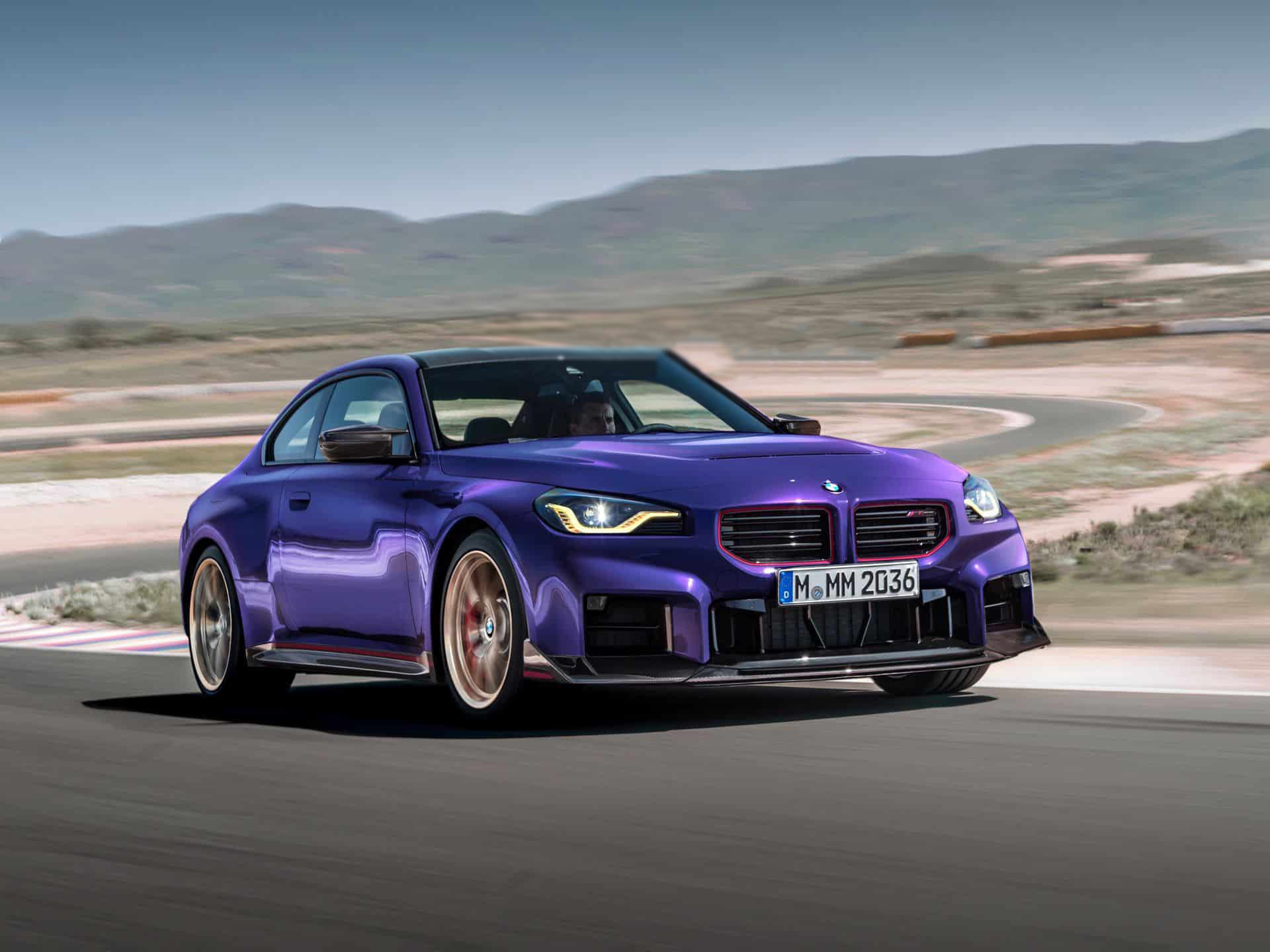
- Power Increase: Standard M2 boosted to 475 hp in 2025, a 22-hp jump from 2023 model, outpacing M3 and M4 by a slight margin.
- M4 xDrive: Expected to increase to 525 hp from current 503 hp.
- Torque: No change mentioned for M2’s current 406 lb-ft.
- M2 CS Predictions: Estimated 518-522 hp, lighter weight, and more hardcore components.
- New Colors: Mineral Red, Portimao Blue, Sao Paulo Yellow, Skyscraper Gray rumored for 2025 M2.
- Interior and Options: 2024 standard coupe to have nicer materials; M240i may add a carbon roof option.
36. Mini Countryman
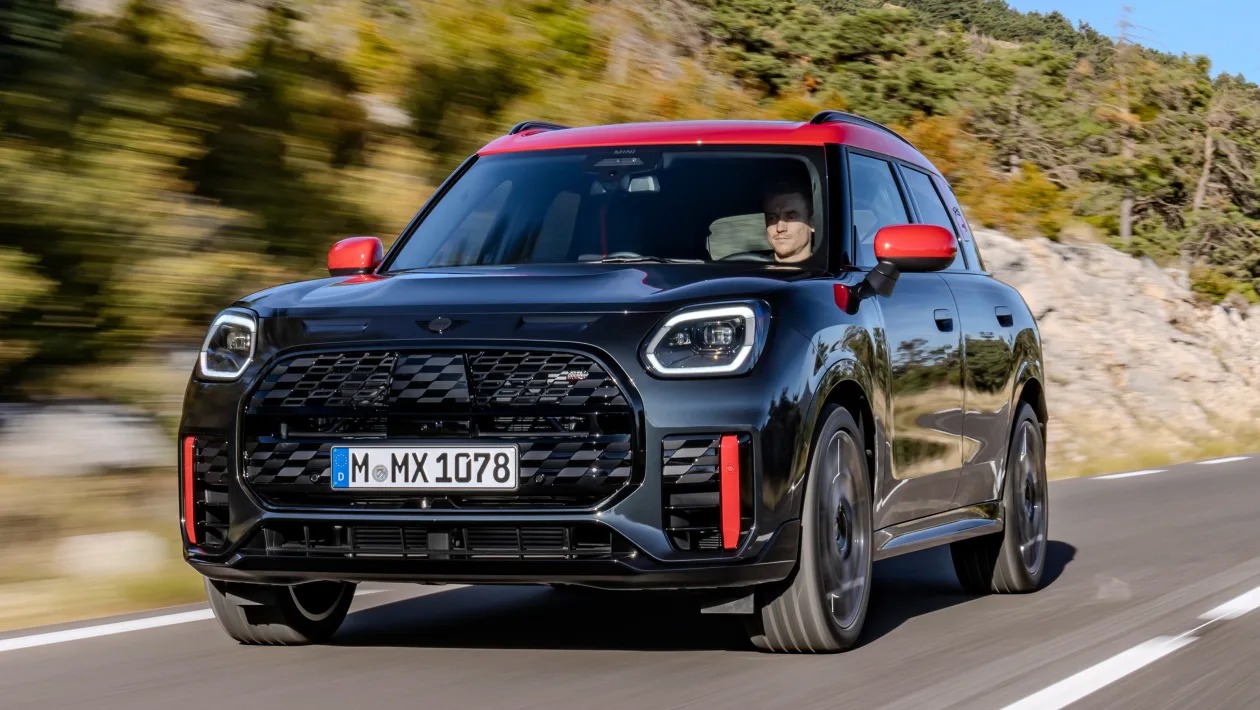
- Range: Battery pack for up to 240 miles per charge.
- Models: Dual-motor SE All4 (308 hp, all-wheel drive) and possibly a single-motor E model (201 hp, front-wheel drive).
- Features: Crisp exterior, well-equipped cabin, circular infotainment system.
- Also Available: Gasoline engine version reviewed separately.
- Launch: New addition to Mini lineup, expected sale in 2024 as 2025 model.
- Pricing: Starts at $46,195 for the Countryman S E All4.
- S E All4 Equipment: Circular infotainment screen, 20-inch wheels, ambient lighting.
37. Porsche Macan EV
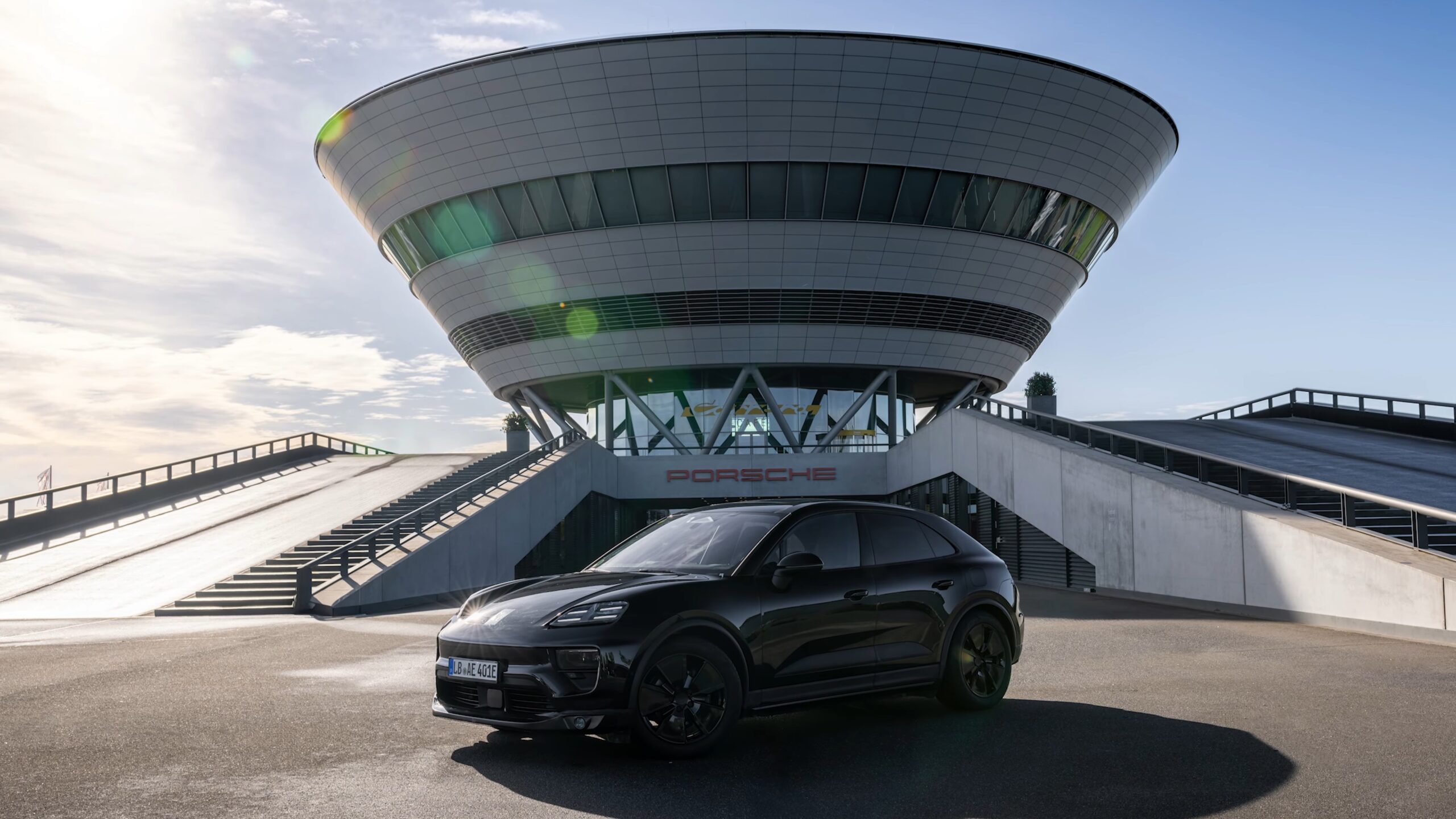
| Battery Capacity | Horsepower | Torque |
|---|---|---|
| 100.0 kWh | Up to 603 | >738 lb-ft |
38. Rivian R2
- Rivian R2 Debut: Official glimpse revealed, full reveal on March 7 with reservations opening immediately.
- Pricing: Estimated to start at $40,000, ranging up to $60,000 for higher-end models.
- Design: Features rounded headlights and a full-width LED light bar, similar to larger Rivian models.
- Competition: Aims to compete with compact electric SUVs like Tesla Model Y and Volkswagen ID.4.
39. Scout Electric SUV
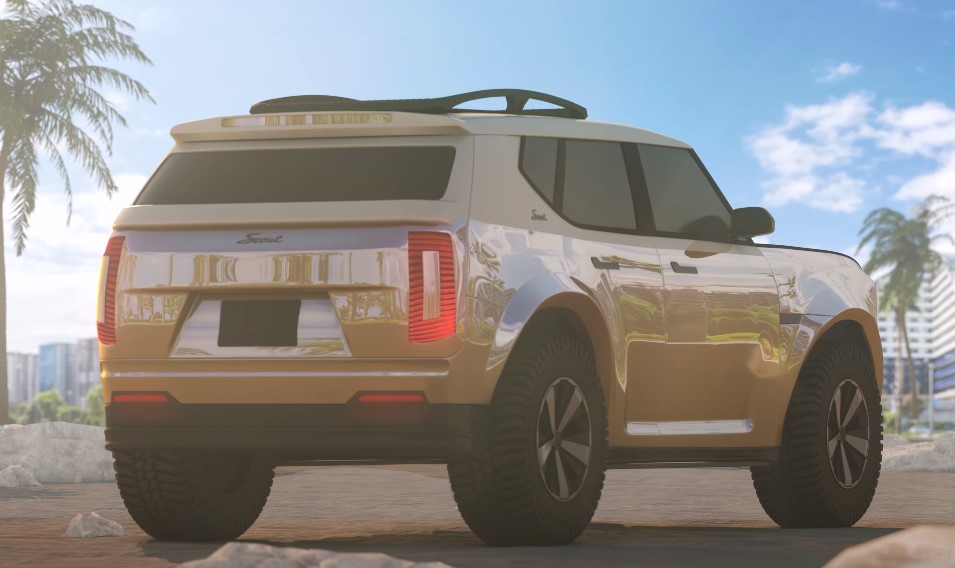
- Initiating Production: Set for 2025 in U.S. facilities
- Vehicle Type: Electric SUV
- Design Influence: Robust and adventurous, in line with models like Ford Bronco and Jeep Wrangler
- Power: Entirely electric
40. GMC Sierra EV
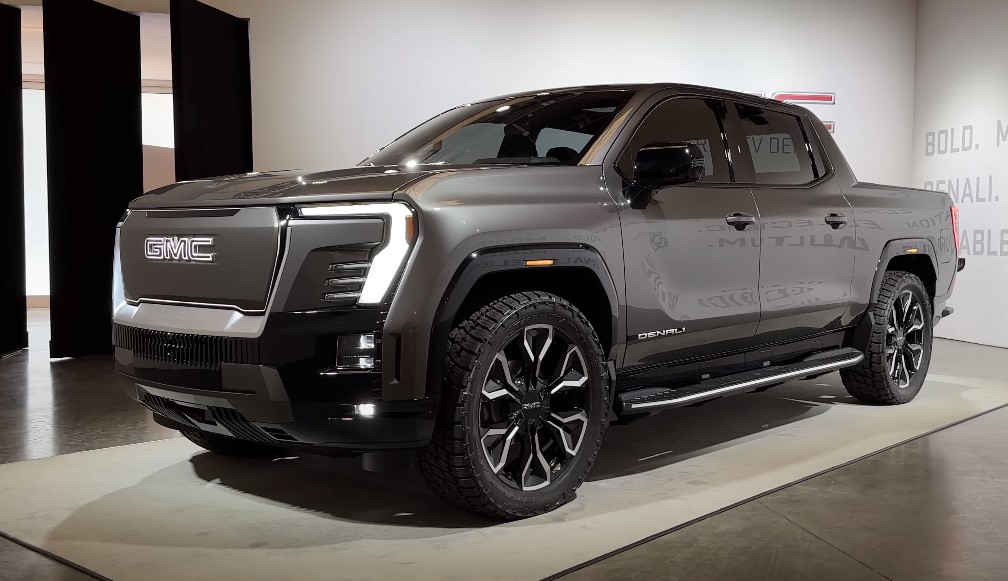
- Availability: Coming in 2024
- Models: Including Denali Edition 1
- Price Range: Starts at $100,000
- Power: Up to 754 horsepower
- Range: Approximately 400 miles
- Release Phases: More accessible models expected in later 2024 and 2025
GMC is expanding its electric pickup truck lineup with the addition of the 2024 Sierra EV, joining the Hummer EV Pickup. The Sierra EV is designed as a more practical option compared to the Hummer and shares many features with the Chevrolet Silverado EV.
Initially, GMC will release the luxurious Denali Edition 1 model, equipped with a 754-horsepower dual-motor, all-wheel-drive system, and boasting a 400-mile range.
Priced over $100,000, this model will be followed in 2025 by more affordable versions like the Elevation and AT4, which will offer reduced performance specifications at lower prices. The Sierra EV will be available exclusively as a crew cab with a 5 foot 11-inch bed according to Car And Driver.
41. Ram 1500 Rev
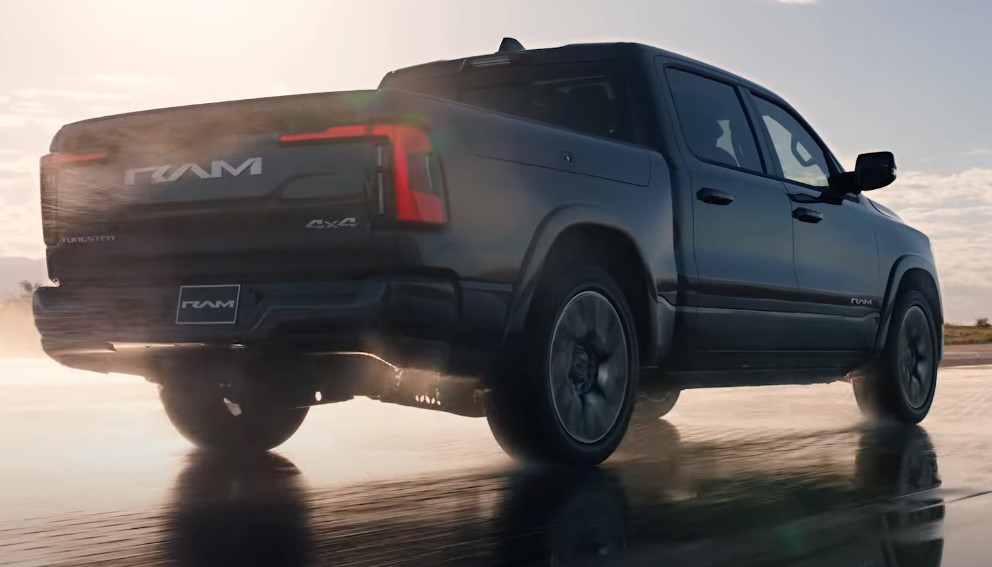
- Arrival: Scheduled for late 2024
- Architecture: Utilizes Stellantis STLA platform
- Drivetrain: Dual motor setup
- Power: 654 horsepower
- Range: Capable of up to 500 miles per charge
Upcoming Automobile Innovations: 2024-2026
| Brand | Models/Initiatives |
|---|---|
| Alfa Romeo | Fully electric Giulia Quadrifoglio, high-performance supercar |
| Aston Martin | Valhalla, reimagined Vanquish models |
| Audi | A6 E-Tron |
| Bentley | Entry into EV market with a luxury model |
| BMW | M2 CS, electric Neue Klasse |
| Chevrolet | Corvette ZR1 / Zora |
| Dodge | Charger Daytona SRT EV |
| Ferrari | New hypercar, SF90 Special Edition |
| Genesis | Genesis X |
| Hyundai | Ioniq 5 N, N Vision 74 |
| Lamborghini | Revuelto SVJ |
| Lexus | LFA-inspired EV |
| Lotus | Envya (next-generation sports car) |
| Mercedes-Benz | AMG GT, compact EQA |
| Polestar | Polestar 5, O2 Convertible |
| Porsche | All-electric hypercar, electrifying 718 Boxster/Cayman series |
| Tesla | New hatchback, Roadster |
| Toyota | Reengineered GR Prius |
Upcoming SUVs: 2024-2028
- Acura ZDX
- Cadillac Escalade IQ
- Chevrolet Equinox / EV
- Faraday Future FF91
- Fisker Ocean & Pear
- Genesis GV90
- Honda Prologue
- Hyundai Ioniq 7
- Jeep Recon
- Lincoln Star
- Lucid Gravity
- Mercedes-Benz EQG
- Mini Countryman
- Porsche Macan EV
- Rivian R2
- Scout Electric SUV
Future Trucks: 2024-2028
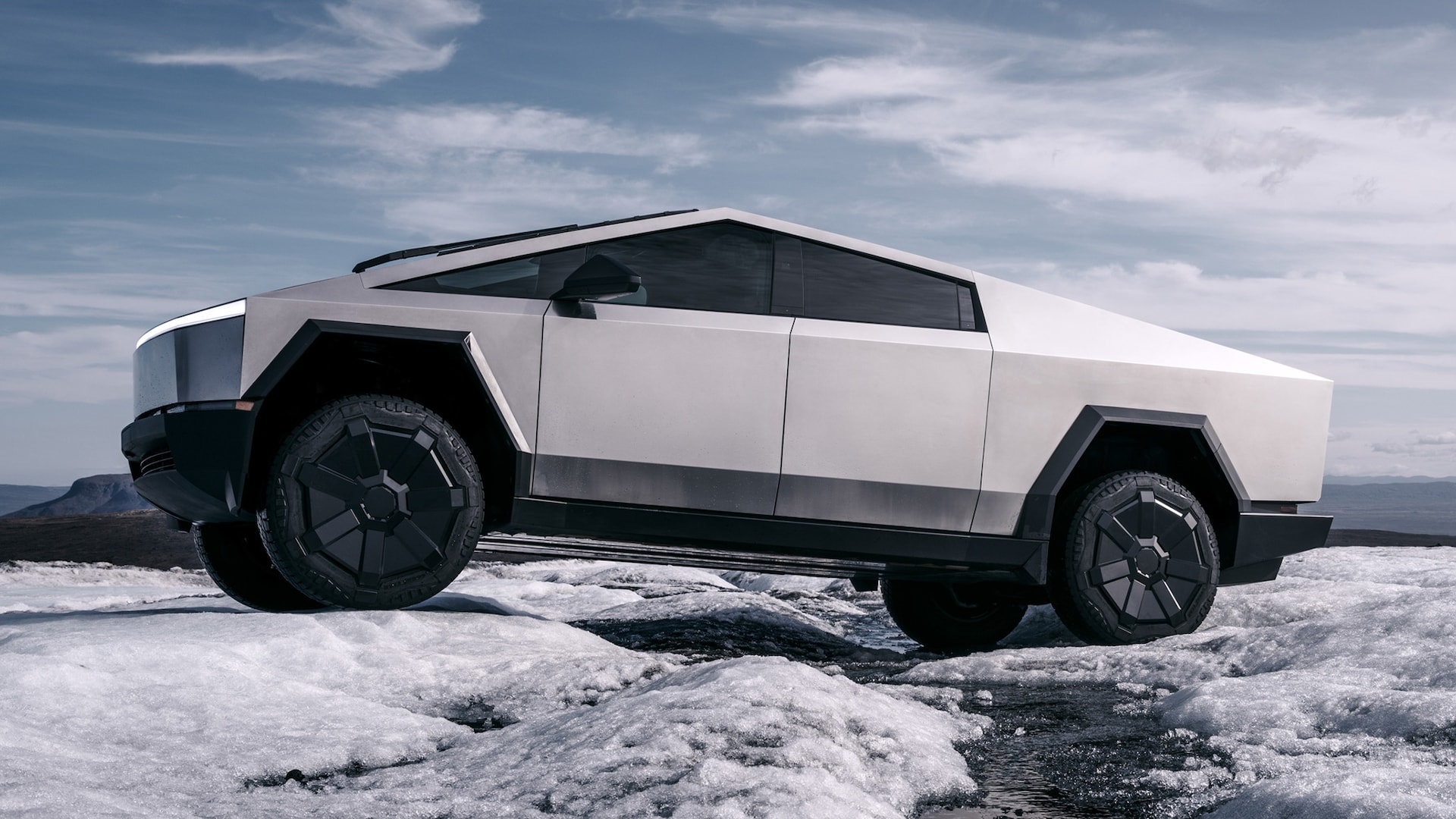
- Canoo Electric Pickup: Innovative design with versatile utility features.
- Chevrolet Silverado EV: An electrified classic with modern updates.
- GMC Sierra EV: Robust power meets electric efficiency.
- Ram 1500 REV: Traditional truck durability goes electric.
- Scout Electric Pickup: Infusing heritage with electric technology.
- Tesla Cybertruck: A futuristic approach to truck design and performance.
Anticipated Enhancements in 2024 SUVs
The upcoming SUVs for the year 2024 are expected to feature advancements such as:
- Advanced driver assistance systems (ADAS)
- Enhanced electric powertrain options for better range and performance
- Use of lightweight materials for improved fuel efficiency
- Improved connectivity and infotainment systems with better integration of personal devices
Attention-Grabbing 2025 SUV Models
SUV models debuting in the 2025 model year have sparked interest due to:
- Pioneering electric and hybrid powertrains
- Autonomous driving capabilities
- Versatile interiors with adaptable seating configurations
- Innovations in vehicle-to-vehicle (V2V) communication technologies
Evolution of Automotive Technologies by 2030
By the year 2030, automotive technology is forecasted to evolve with:
- Widespread adoption of autonomous driving features
- Growth in the production and use of sustainable materials
- Improvements in battery technology for electric vehicles (EVs)
- Increased focus on vehicle cybersecurity measures
Cutting-Edge Innovations Expected by 2050 in Cars
Looking towards 2050, cars are anticipated to incorporate:
- Fully autonomous driving systems capable of complex navigation
- Integration with smart city infrastructure to optimize traffic flow
- Revolutionary propulsion systems, possibly including hydrogen fuel cells
- AI-driven predictive maintenance and personalization options
Design Trends Influencing Future Cars and SUVs
Over the next decade, design trends shaping cars and SUVs include:
- Aerodynamic designs for enhanced efficiency
- Minimalist and functional interiors focusing on passenger comfort
- Adoption of smart glass technology for improved privacy and energy savings
- Use of recycled and sustainable materials across interior and exterior surfaces
FAQs
What are the anticipated environmental impacts of these new electric vehicles (EVs)?
While the text focuses on the performance and design aspects, it’s important to note that EVs generally have a lower environmental impact compared to traditional combustion engine vehicles, particularly in terms of greenhouse gas emissions and air quality improvement.
How are automotive manufacturers addressing battery disposal and recycling?
This aspect isn’t covered in the main text. Manufacturers are increasingly focusing on sustainable practices, including battery recycling and the use of eco-friendly materials to minimize environmental impact.
What are the expected advancements in charging infrastructure to support the widespread adoption of EVs?
With the rise of EVs, significant investments and advancements in charging infrastructure, including faster charging technologies and wider availability of charging stations, are expected.
Are there plans for autonomous driving features in these upcoming models?
While not detailed in the text, many manufacturers are integrating advanced autonomous driving technologies in their new models, aiming for safer and more efficient driving experiences.
How are carmakers ensuring the affordability of these new electric and hybrid models?
Affordability is a key factor for wider adoption. Automakers are working on reducing production costs and increasing efficiency to make EVs and hybrids more accessible to a broader range of consumers.
Will there be government incentives or subsidies for purchasing these new models?
This varies by region, but many governments offer incentives like tax credits, rebates, and grants to encourage the adoption of EVs and hybrids.
Final Words
The upcoming range of vehicles, from high-performance supercars to practical daily drivers, signifies a new chapter in automotive history, one that promises to redefine our driving experience while being mindful of environmental impacts.
The journey ahead is not without challenges, particularly in areas like battery technology, charging infrastructure, and affordability. The collective effort of the automotive industry, governments, and consumers indicates a promising road ahead.
As we witness the shift towards electrification and advanced technologies, it’s an opportune moment for enthusiasts and consumers alike to embrace the future of mobility.
Disclaimer:
The information provided in this text is intended for general informational purposes only. It is based on sources believed to be reliable as of the date of the document’s creation. However, the accuracy, completeness, and reliability of the information cannot be guaranteed. The details regarding the automotive models, features, specifications, release dates, and other related information are subject to change by the respective automobile manufacturers and may not be up-to-date at the time of reading.
This document does not serve as a purchasing guide and should not be used as the sole basis for any investment or purchase decisions. Any reliance on the information in this text is at the reader’s own risk. The author or publisher of this document is not responsible for any inaccuracies, errors, or omissions in the content, nor for any actions taken based on the information provided.

